Some people are born with it, others take years to learn and to appreciate it. The passion for cooking is something that professional cooks, food aficionados aka foodies, and nonnas who carry the oldest recipes out there share in common.
But big things start from simple steps and in order to dive deep into the cooking universe, you want to start with a solid foundation of ‘know-how.’ This takes practice and taking notes from the best tips and tricks from people who already know what they’re doing.
And this thread posted on the Cooking subreddit is a great way to do that. “What tip did you never think of, that seemed so obvious and really helpful after someone taught you?” asked Redditor Smartchic and the responses started rolling in. From things like making a jam from sad berries on the verge of going bad and sprinkling some water before microwaving leftover food to soften and moisten it, it’s crazy how simple these obvious tricks are. Have one to share as well? Hit us in the comment section below!

#1
I almost never used my non stick pans for searing meats. I would always panic when the meat stuck, no matter how much oil/butter I used. I would force it to unstick right away, often ripping up the meat. It took my years to learn that the meat will unstick itself once some of the fats render out. I learned it from Master Chef.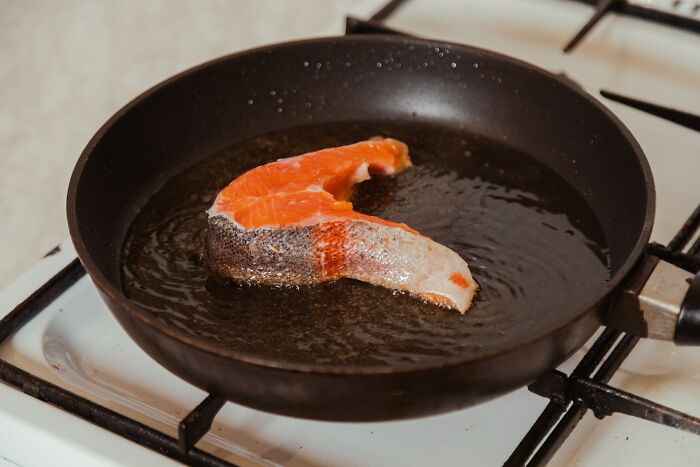
Image credits: nicelittlenap
#2
Mince fresh parsley (or basil) and spread it out in a gallon zipper freezer bag and freeze. When it's completely frozen squeeze out the air and roll it up and tuck it somewhere handy in your freezer. It stays green and you can use as much or as little as you want.The same idea with tomato paste. Empty the can into a freezer bag, flatten it out and freeze it. You can just break off what you need without wasting most of the can.
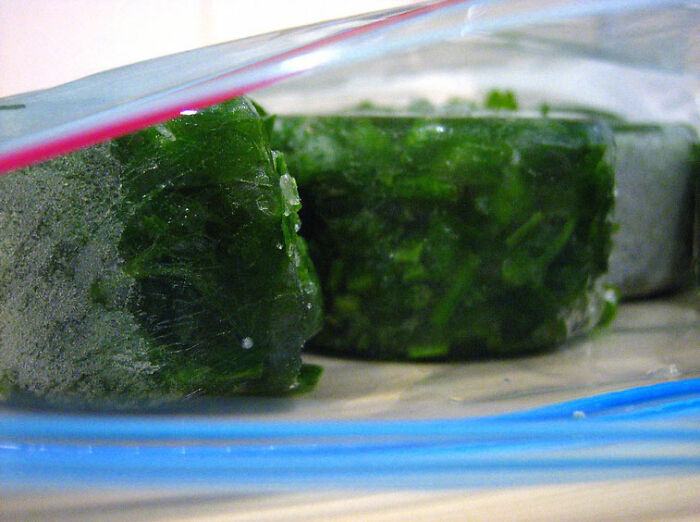
Image credits: wuzacuz
#3
For me it was “freeze the ends of soup stock veggies (carrots, celery, onions) and meat bones when you are making other things” so when you want to make soup your base for broth is ready.I don’t know why I never thought of this myself. I hate waste, so this works out in many ways for me. Cooking some stock now and it smells amazing.
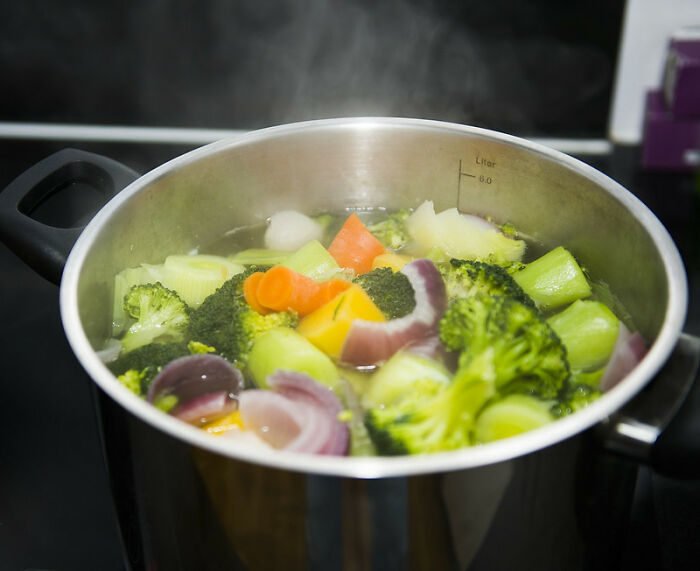
Image credits: smartchic65
#4
Freeze your ginger and grate it from frozen without peeling. Peels end up on the outside of the grater, and it lasts for ages in the freezer. You’ll always have fresh ginger on hand.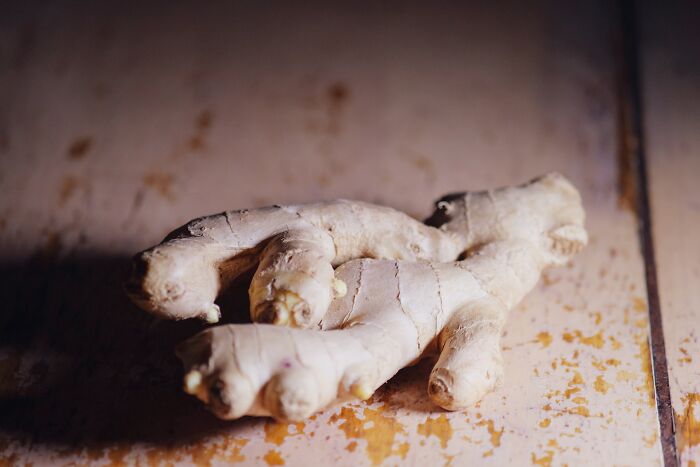
Image credits: madmaxx
#5
For cold bread and pizza... get some water and sprinkle it inside or on the plate before you nuke it... Softens up the crust... Makes cold pizza glorious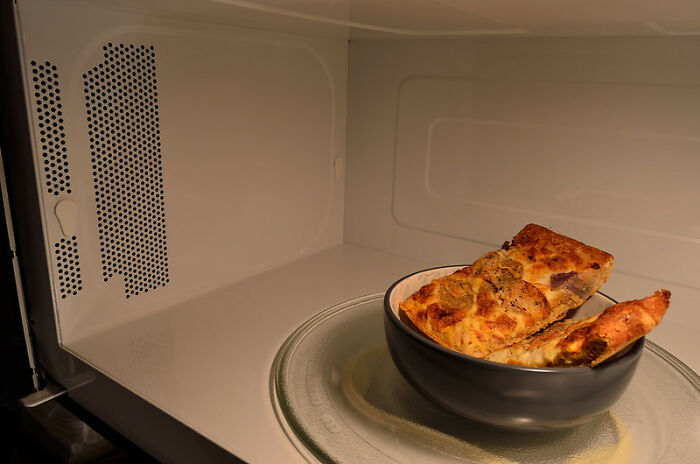
Image credits: ieatplaydough
#6
If you want to make good fried rice use cooked rice that's been in the fridge overnight.This was a revelation! Because the rice is dry it doesnt stick together when you fry it. I'd been making gluggy messes for years cooking it from raw. Once I started using cooked rice it actually looked like the stuff you buy!
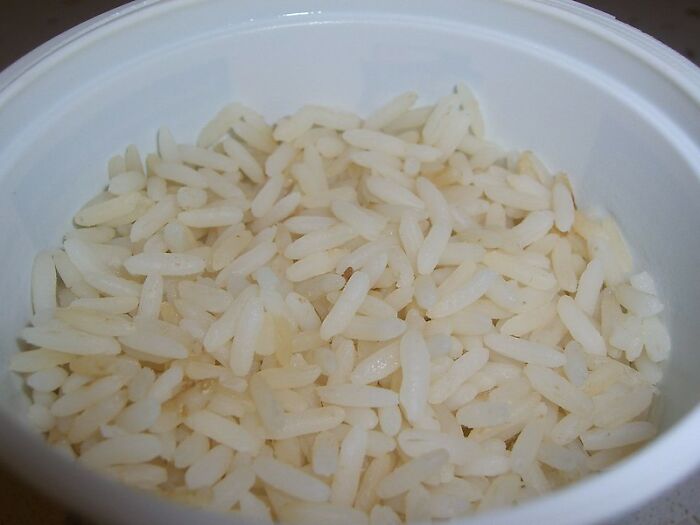
Image credits: babamum
#7
Do not over crowd your pan when browning meat or veggies. You’ll steam them instead of getting a hard seat. I also replace the water in brownie or chocolate cake recipes with coffee (box or home made)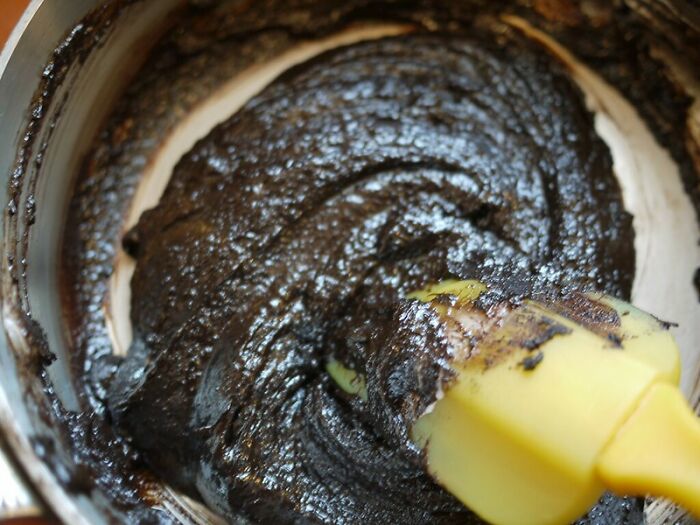
Image credits: CivilOlive4780
#8
Scrape the cutting board to gather chopped or minced ingredients with the blunt side of the knife to protect your cutlery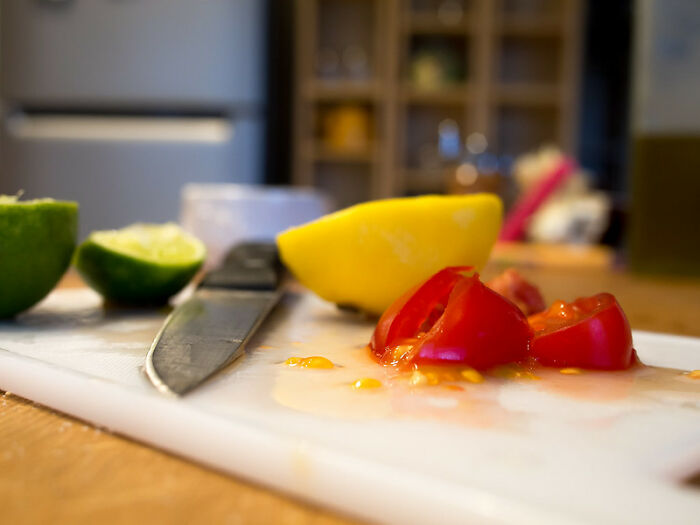
Image credits: AltonIllinois
#9
A tablespoon of white vinegar in your poaching liquid will give you perfectly set poached eggs. No plastic bags or poaching cups required."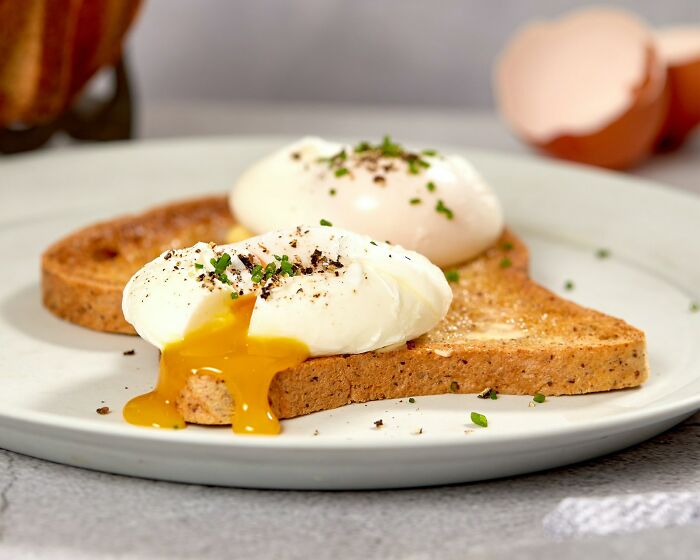
Image credits: EmcSquared
#10
Roast vegetables for longer than you might think necessary. I used to hate roasted veggies because they’d either be hard and undercooked or mushy. Then I realized you just need to cook them for even longer so that they transcend the mushy stage, the moisture is removed, and they begin to brown."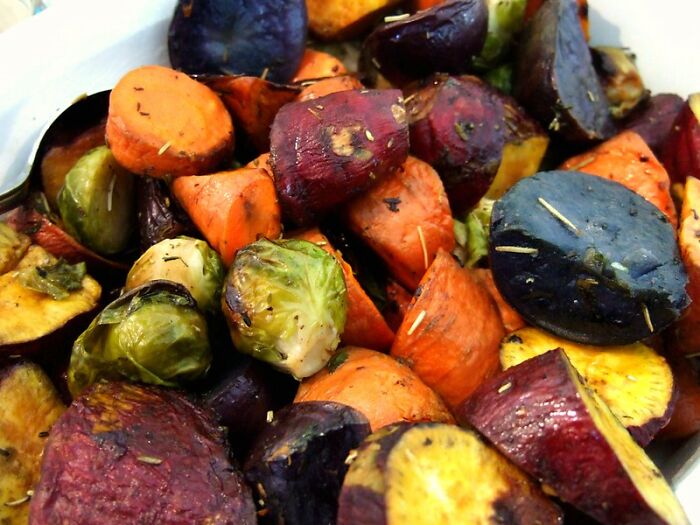
Image credits: u/putsch80
#11
Use a hand mixer to shred chicken. An absolute game changer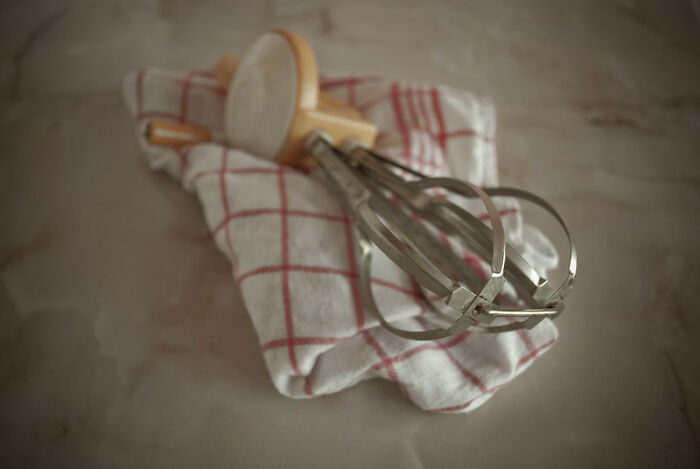
Image credits: radtastictaylor
#12
Taste as you go.It is obvious but weirdly enough, when I started cooking, I did not do that at all. Food tasted either over seasoned or bland AF.
Once I did, food tasted way better instead of blindly seasoning because a recipe said so.
It was honestly watching UK's Kitchen Nightmares that I learned this.

Image credits: RandomAsianGuy
#13
Don’t put too much salt in anything that is going to thicken up and reduce. You might end up oversalting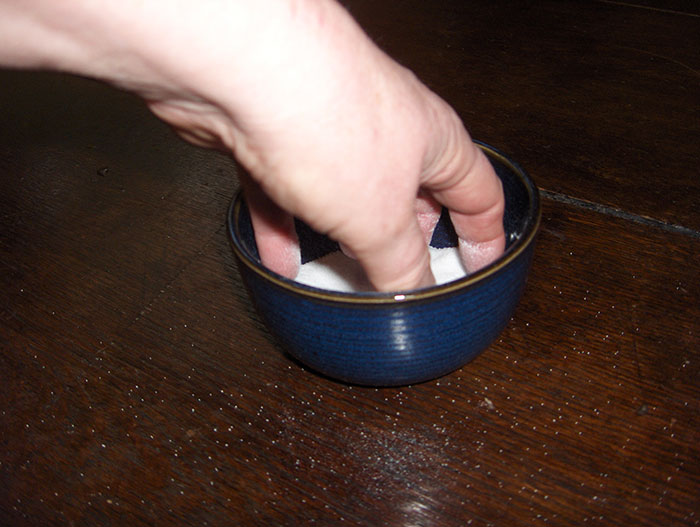
Image credits: drb00b
#14
A tablespoon or two of butter at the end of cooking tomato sauce for pasta adds a delicious rich flavor.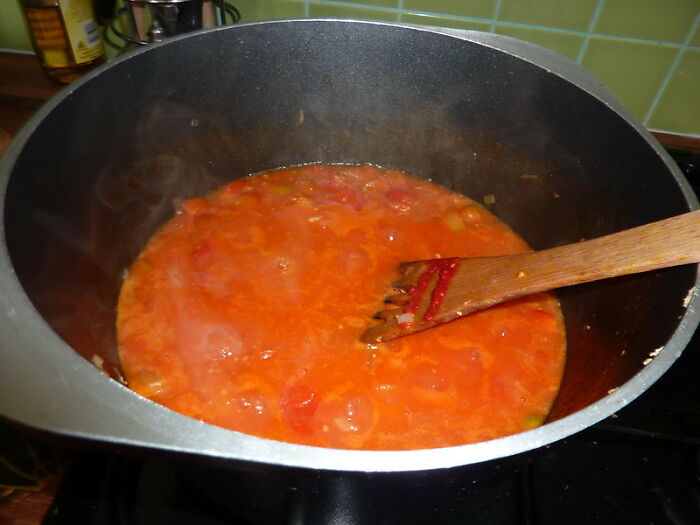
Image credits: LowAfternoon8155
#15
If there is water in the pan, the Maillard process (browning of food from searing) will never happen.If there is water in the pan, the temperature is less than boiling temperature (100 Celsius), and maillard needs 140-165 to happen. This is why recipes call for wiping moisture off steaks before searing them.
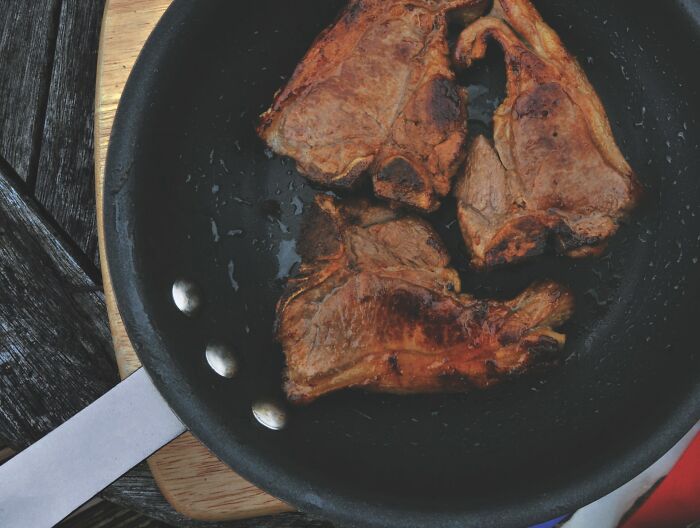
Image credits: sparkplug_23
#16
If you’re making a dish that relies heavily on spices for seasoning, toast the spices before adding them to the recipe to bloom them. You only need to cook them in a pan until fragrant (which takes about 30 seconds to a minute). This quick step vastly improves their taste and amplifies the flavor so you can use less.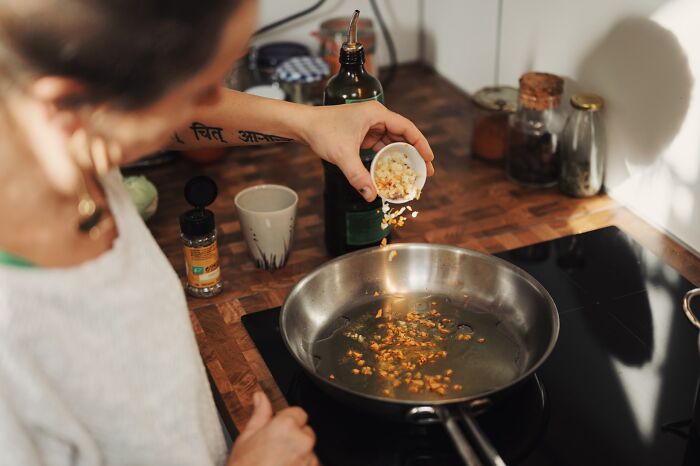
Image credits: katiet4e69249bc
#17
If you want over-easy eggs but the whites are taking a while to set, place a lid on the pan and wait about 30 seconds. The steam will cook the whites quickly, and the yolks will still be nice and runny."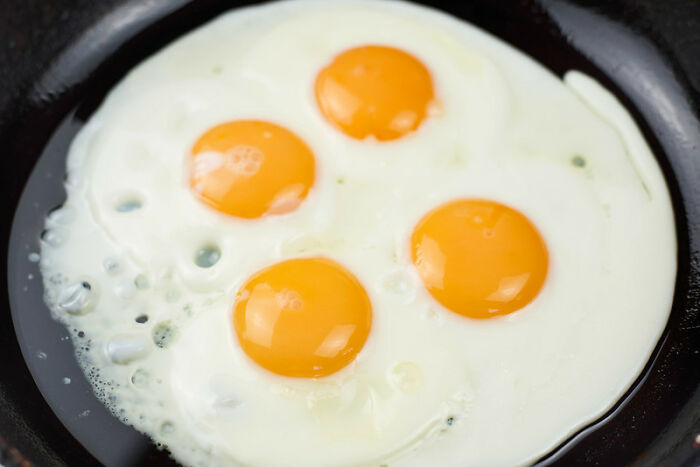
Image credits: ericag476c06e05
#18
Cinnamon and nutmeg aren't just for baking. They make great additions for marinades and savory dishes. Try adding cinnamon to chili or nutmeg to creamy sauces like béchamel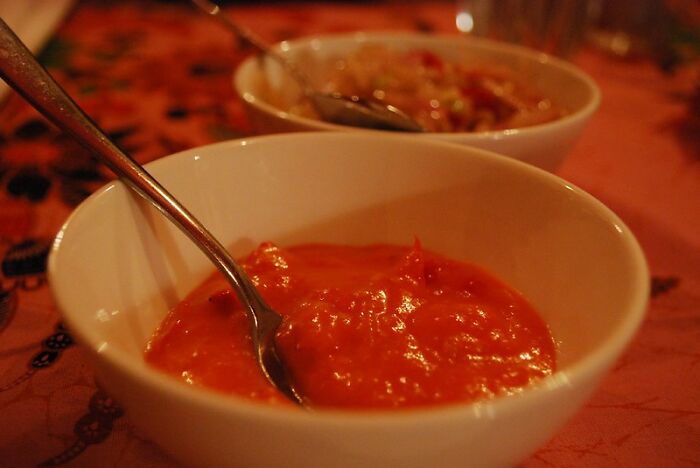
Image credits: u/boncrys
#19
If your homemade soup is too thin, try adding instant mashed potatoes as a thickener. Since I learned this trick, I've started keeping a box around for lazy days or emergencies. They're a lifesaver when you've added too much liquid to soup.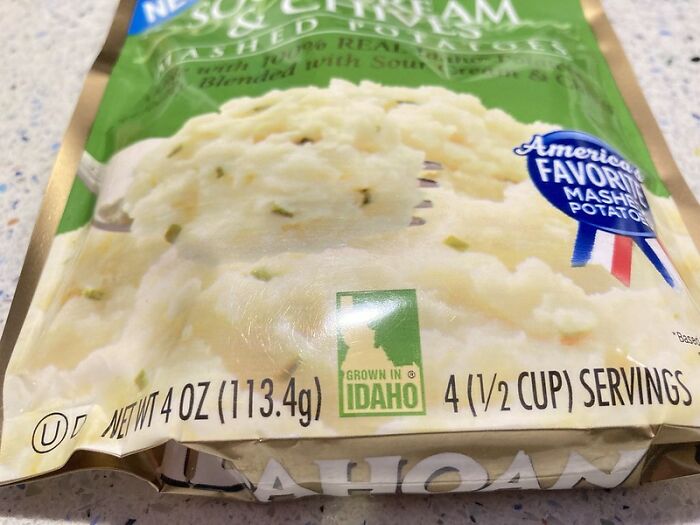
Image credits: PeachasaurusWrex
#20
Use a grater or microplane to grate a bit of butter over leftovers when reheating them in the microwave. Grated butter gives whatever you're reheating the perfect amount of moisture and flavor without drowning it in liquid."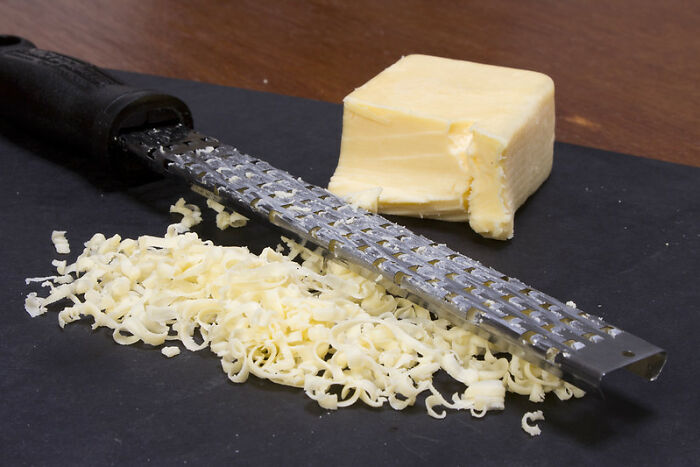
Image credits: pugvox
#21
If you are baking or cooking and need to weigh ingredients, try reverse taring. Put the entire container of your ingredient on the scale, then set it to zero and measure what you've taken out. This is useful because you can weight ingredients without dirtying another dish. It's particularly handy for sticky or messy ingredients like honey or peanut butter.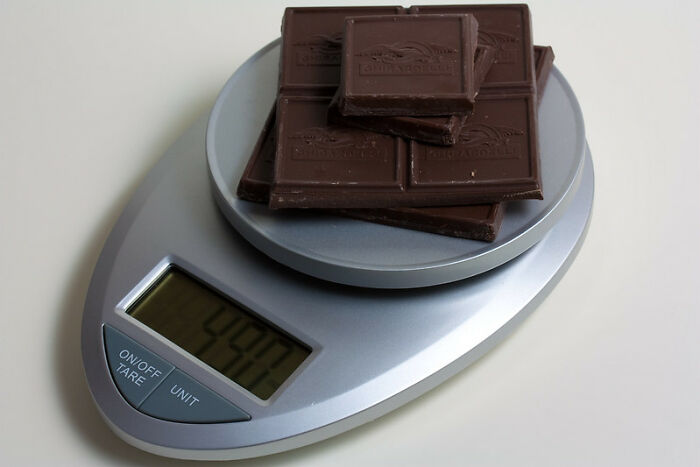
Image credits: legoruthead
#22
Save leftover bacon grease and sauté onions with it, or just use bacon grease instead of olive oil or butter when you're making anything that could use a little extra flavor boost.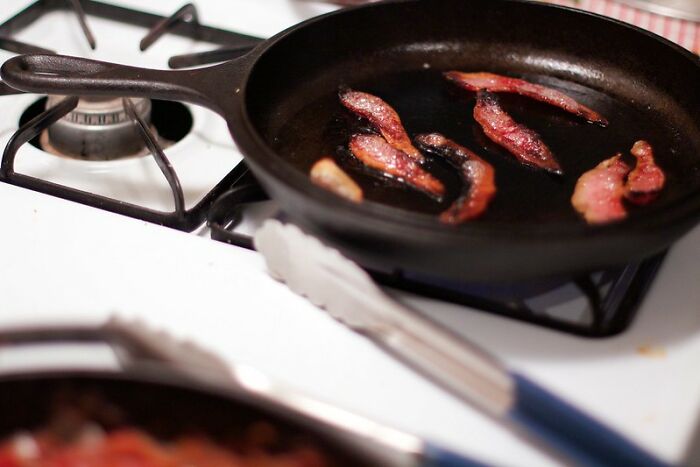
Image credits: andiepandie23
#23
For soft and fluffy cookies that still taste fresh after a few days in the fridge, add an extra egg yolk to any cookie recipe you're following, even store-bought dough.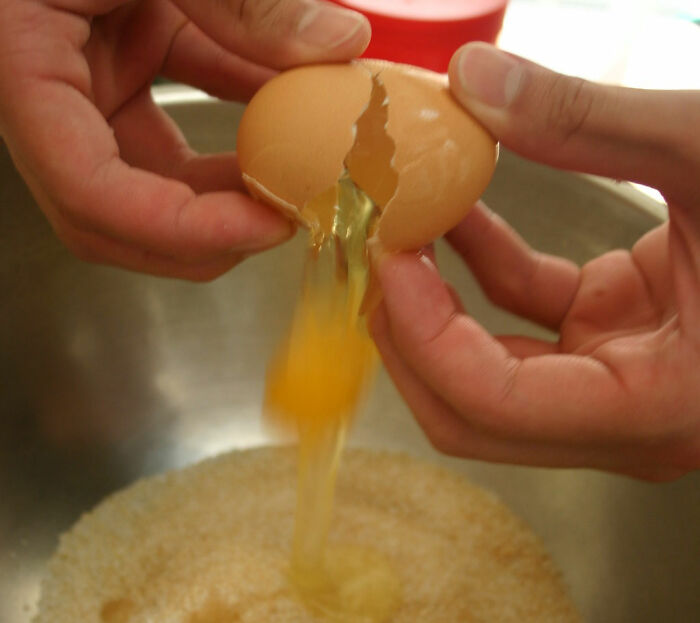
Image credits: merlexcal84
#24
You can make really good chewy cookies by mixing a box of cake mix with half a tub of Cool Whip. Just bake at 350° and start watching them around 8 minutes or so.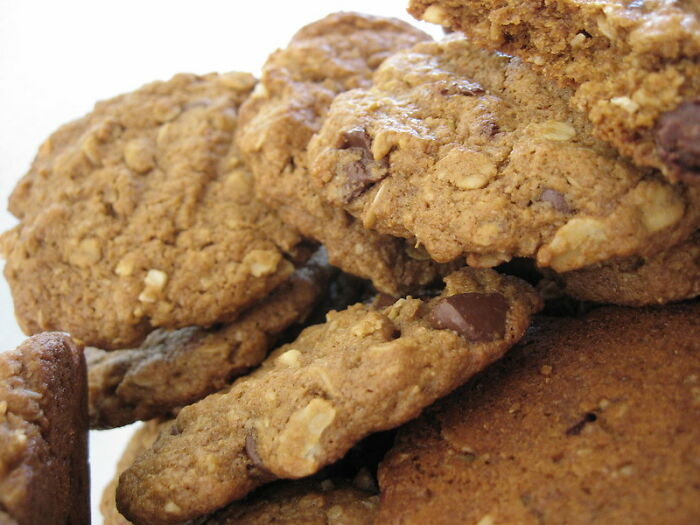
Image credits: nvmls
#25
Make compote or jam from sand berries on the verge of going bad. I leave it in the freezer and then use it on pancakes, yogurt, and more.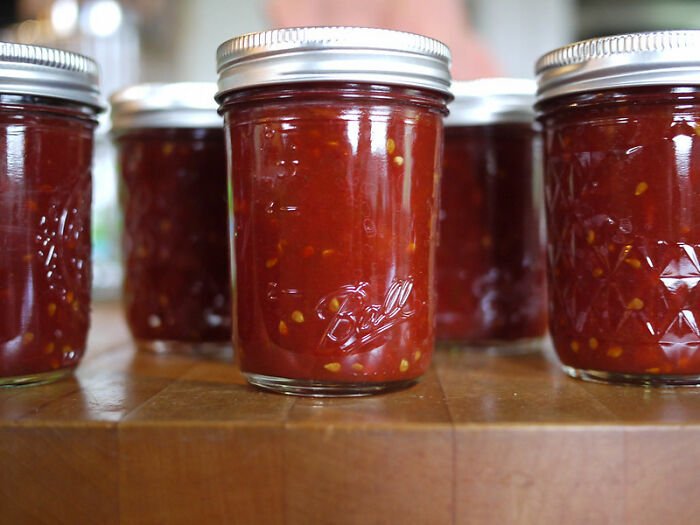
Image credits: sgarner0407
#26
Add a layer of Greek yogurt on top of fish fillets like salmon before baking. It prevents the salmon from drying out on the oven, keeping it moist and flaky.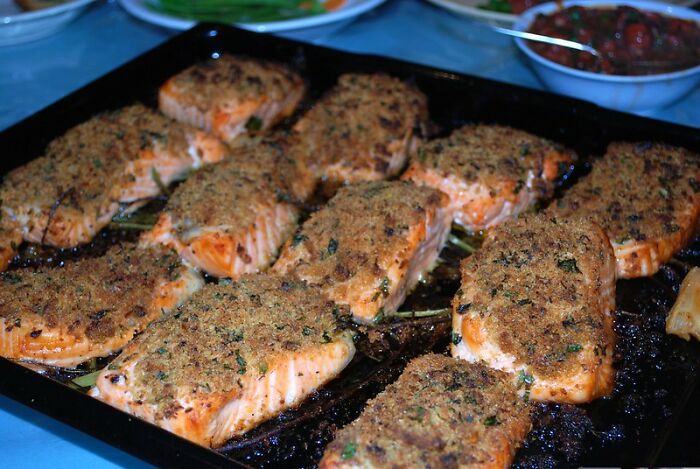
Image credits: schmelendez
#27
When you're slicing an onion, leave the hairy side in tact rather than cutting off both ends. This will hold all the layers together and make it easier to chop or dice.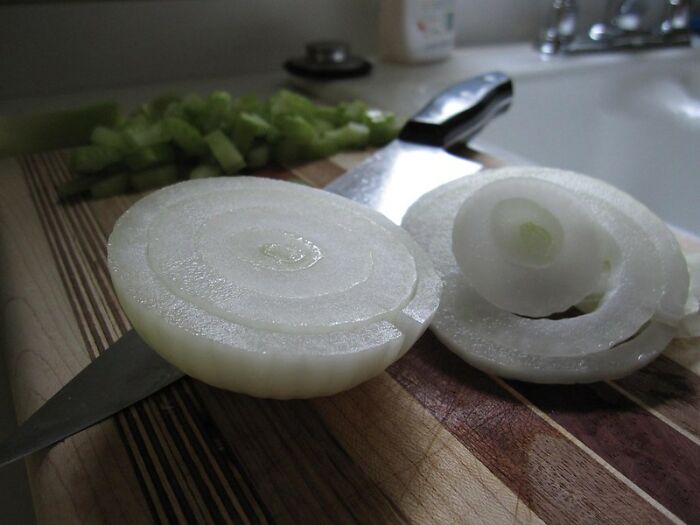
Image credits: megadori
#28
If you have lemons that are about to turn, squeeze them and freeze the juice in ice cube trays. You can do the same with stocks!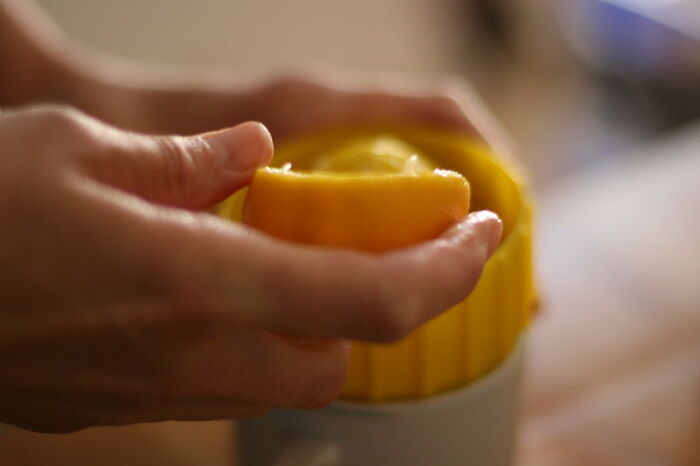
Image credits: heathercs34
#29
When something says 'season to taste', it doesn't just mean salt or pepper. It could be adding an acid, or a sugar, or so on - it's about balancing everything.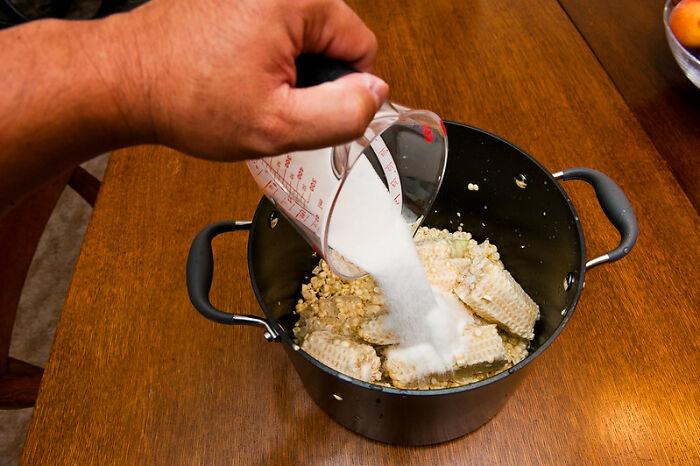
Image credits: twolephants
#30
Buy spices whole and grind what you need. Whole spices are more affordable, last so much longer, and the flavor of freshly ground spices can't be beat.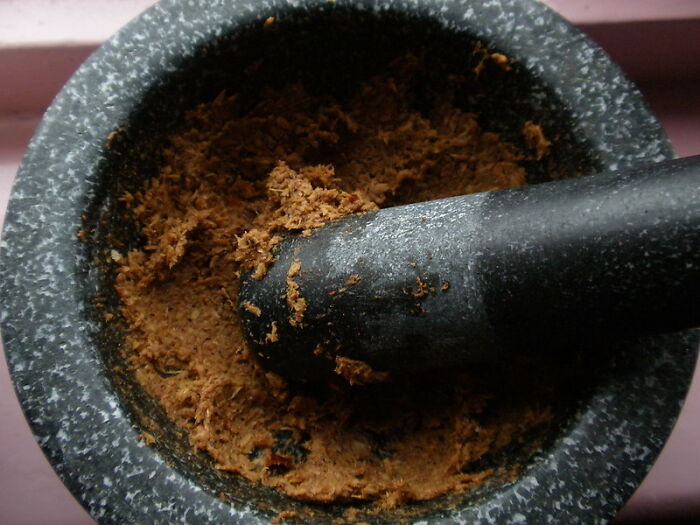
Image credits: Bad_Chicken_2
#31
More of a cleaning tip. Cooked with an older guy at a local bar & grill. We were cleaning up for the night and one of the kid mac&chz exploded in the microwave when I forgot it. So I was scraping and scrubbing this hard burnt cheese and pasta out by hand. The old cook saw me struggling and grabbed a soapy wet rag and nuked it for 2 minutes. Presto! He wiped the inside of the microwave with a paper towel in seconds. Brilliant! It's how I clean microwaves now.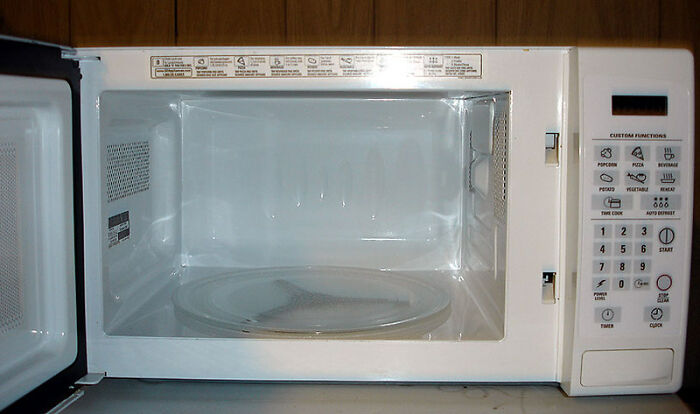
Image credits: Target_Repulsive
#32
Chop fresh herbs that about to go bad and freeze in an ice cube dish with a little olive oil.OR just dry them when you have leftover instead of keeping them in the fridge waiting. Once they’re dried, they keep their flavor for a few weeks. So much better than store bought.
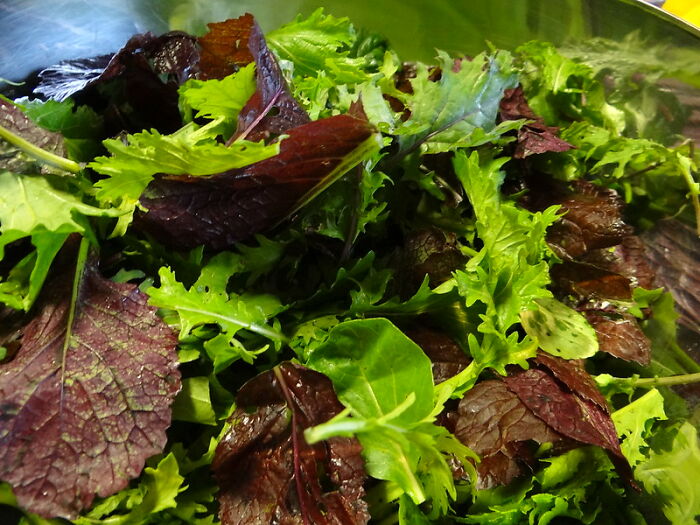
Image credits: the_holocene_is_over
#33
Smash the garlic with the flat of the knife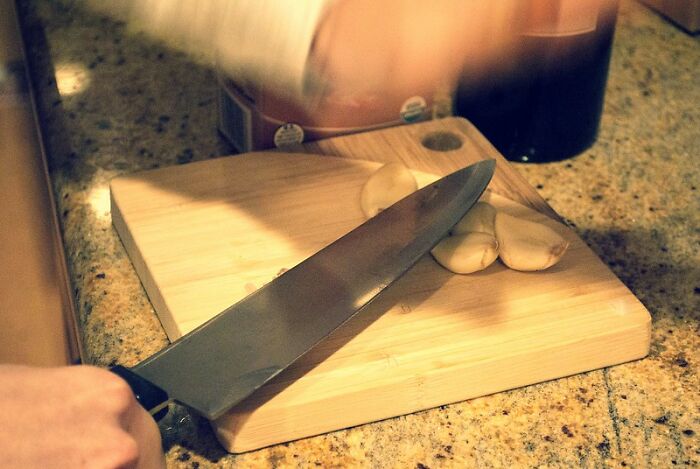
Image credits: exackerly
#34
Damp towel under the cutting board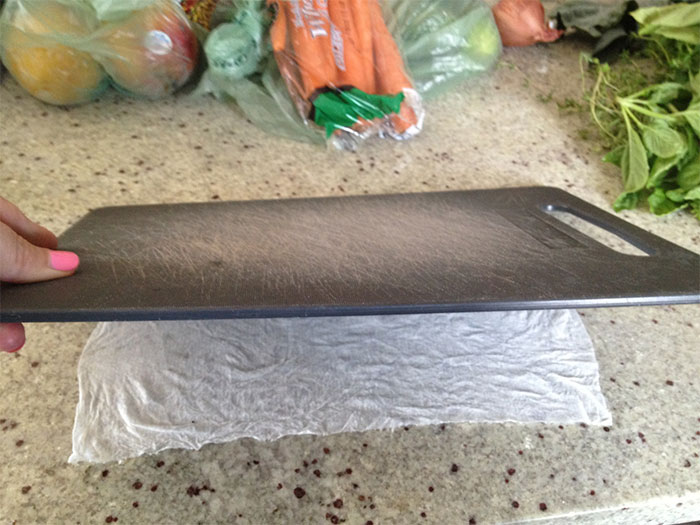
Image credits: pushaper
#35
I broke down a turkey a week ago and pressure cooked the carcass with some veggie leftovers to make stock. After I let the stock cool in the fridge, there was a huge thick disk of turkey fat on top of the stock.I usually have little use for fat, but this time I decided to use the fat to confit the turkey legs, wings, and thighs.
After 24 hours of sous vide, I then took the remainder of the turkey fat to crisp the skin in my cast iron chicken fryer.
So, long story longer, fat. Save it, use it.
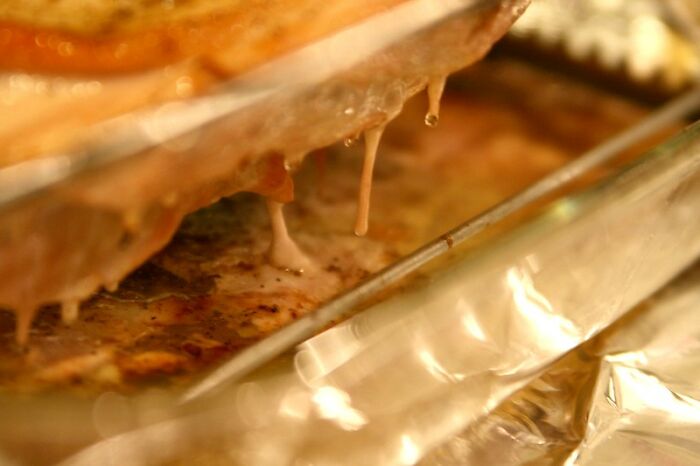
Image credits: 0ooO0o0o0oOo0oo00o
#36
Use your special ingredients while they're fresh and good.Don't be so intimidated by the price of the saffron or the vanilla pods that you use too little to taste, and let the rest go bad in the cabinet.
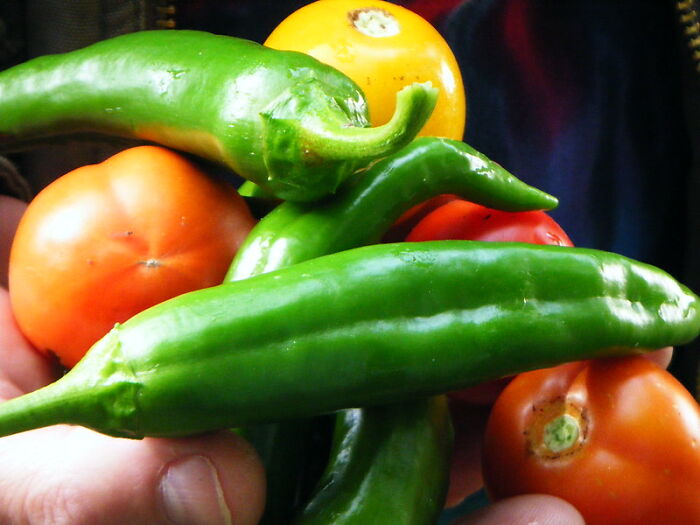
Image credits: Bellsar_Ringing
#37
When dough reaches ~212F, water is evaporated out and bread becomes hard.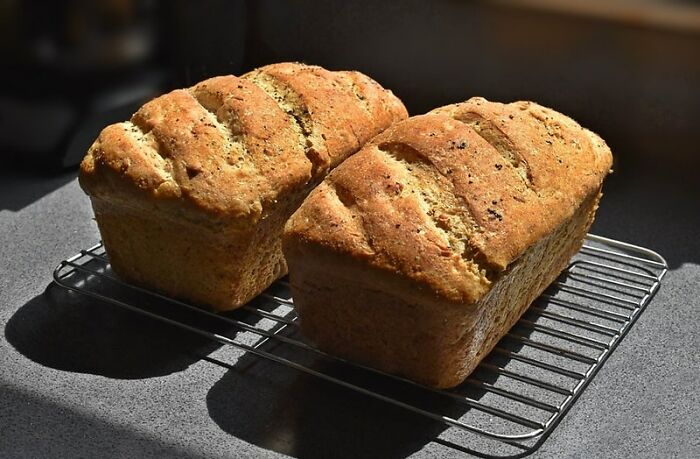
Image credits: ptrakk
#38
When you buy a rotisserie chicken at the store/Costco, pour off all the liquid in the bottom of the bag/box. Store it in the fridge for a few days or endlessly in the freezer. If the chicken is in a plastic box-like container, place a layer of plastic wrap over the chicken and then put on the lid.The liquid is essentially rendered gelatin, fat, and broth. Use it to thicken sauces or add extra oomph to your stock. Heck, if you collect enough you basically have a bowl of soup right there, ready for toppings of your choice.
Putting the plastic wrap on top of the chicken just helps make it last longer. Removing the "juice" also helps extend the life in your fridge. I live with just my vegetarian sister so I like to do whatever I can not to waste food (meat) due to spoilage!
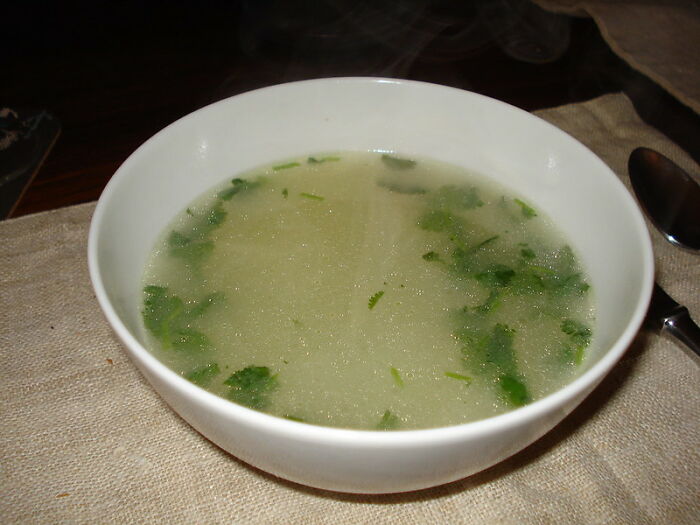
Image credits: monty624
#39
Have a small bowl next to you for trash veggie peels scraps. Saves a ton of time from going back and forth to the trash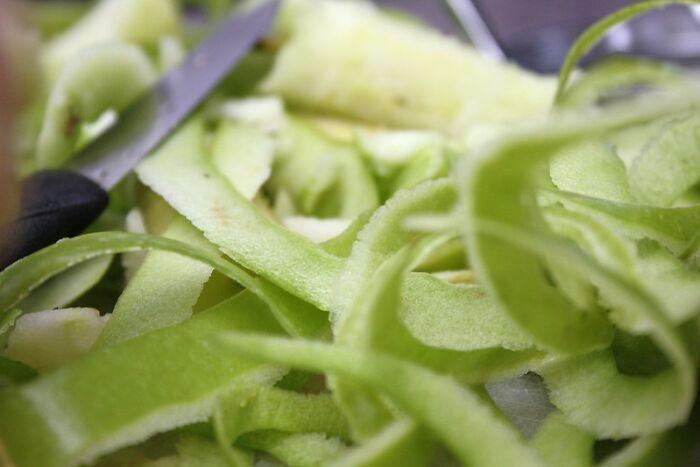
Image credits: mjp02002
#40
I used to painstakingly clean mushrooms one by one with a little brush. Then I saw Jacques Pepin just dunk them in a bowl of water and say "give them a bath right before you're going to use them." So much easier!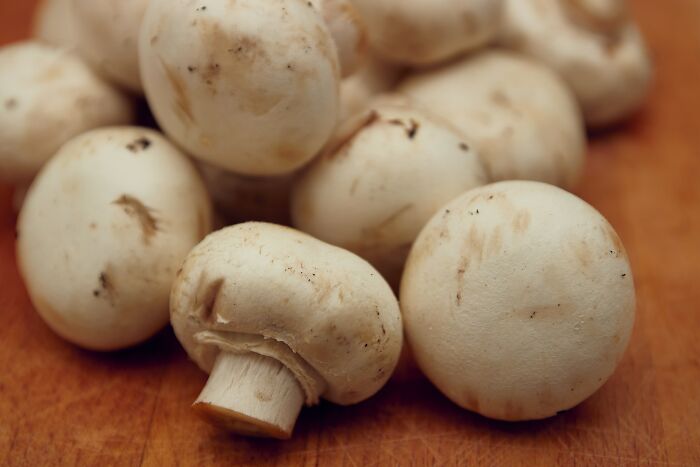
Image credits: ffwshi
#41
Putting the entire pumpkin in the oven to roast it so you can easily remove the skin and scoop the seeds out to make pumpkin soup.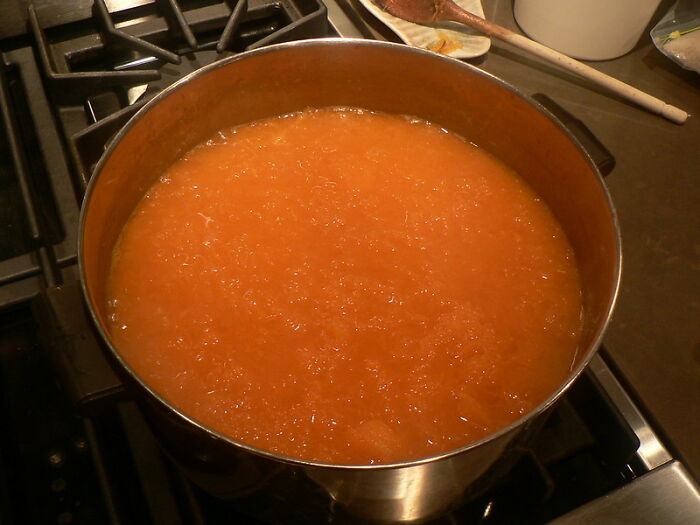
Image credits: Grand_Replacement310
#42
Butter on bad sour marinara sauce. Thanks, chef Ludo.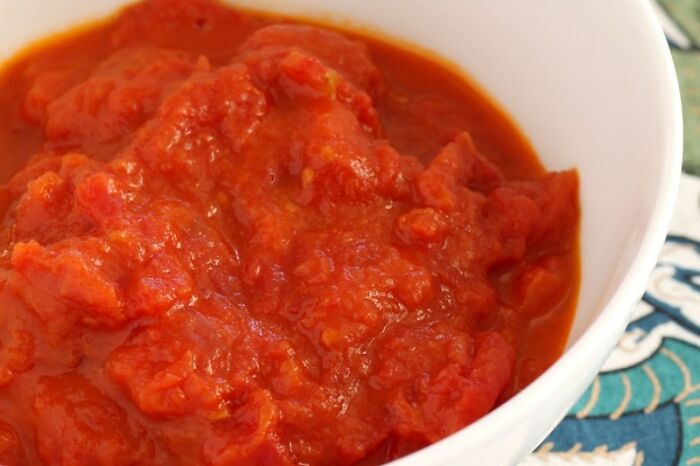
Image credits: Anfini
#43
Salt soup so that is tastes a bit under-salted to you as you are doing it. It always ends up tasting way saltier as it cooks longer, because the salt takes a bit to melt and fully incorporate.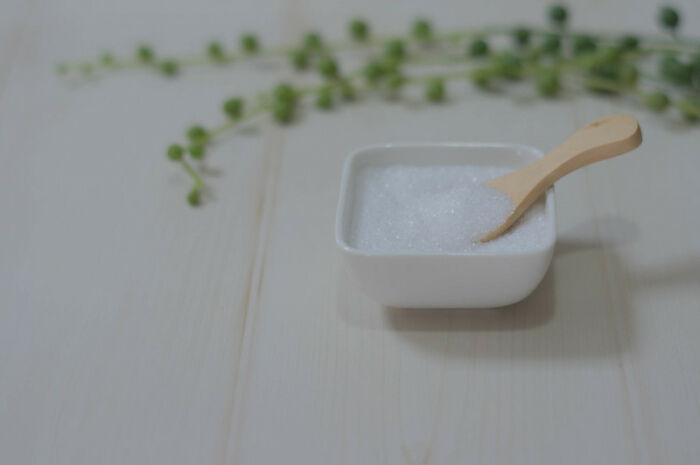
Image credits: [deleted]
#44
Season food from higher up to spread more evenly.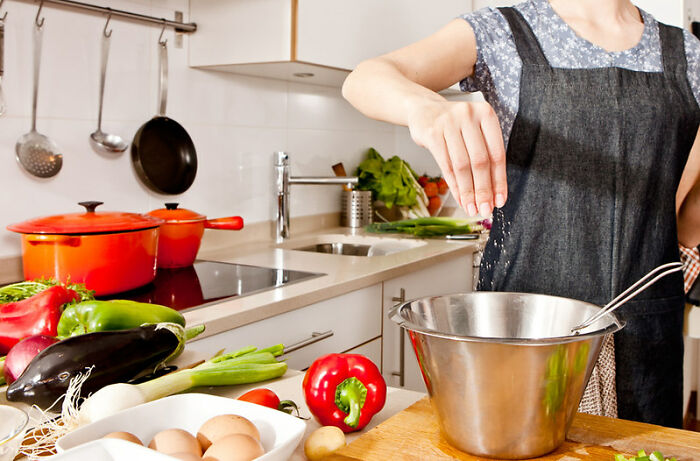
Image credits: millipedesteve
#45
You can use some of the same herb or ingredient cooked in and also as a final garnish for enhanced flavor profile.Most things really do keep cooking after you turn off the heat. Turn off the heat when it says. Don't overcook.
Use an in-oven thermometer for a gas oven.
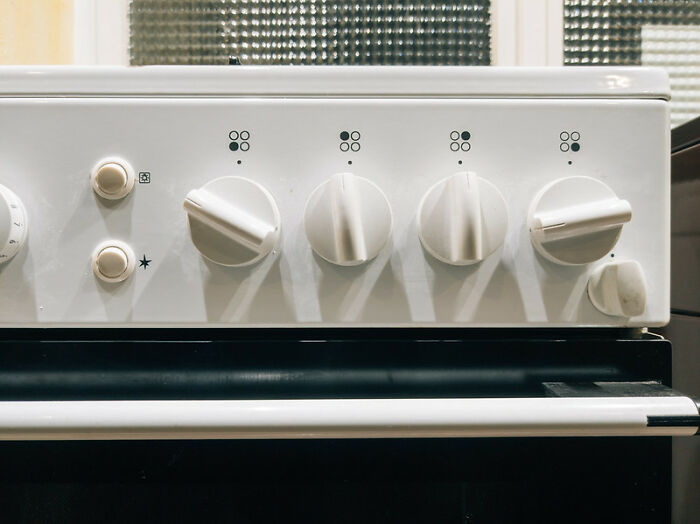
Image credits: panickedhistorian
#46
Two that now when I see people do it, I nearly have an aneurysm.Stop touching your cooking piece of meat. Don't constantly flip it, move it around the pan, etc. Let it get a sear.
Season your meat before you cook it. Makes no sense to season once it's cooked, as that shit won't absorb.
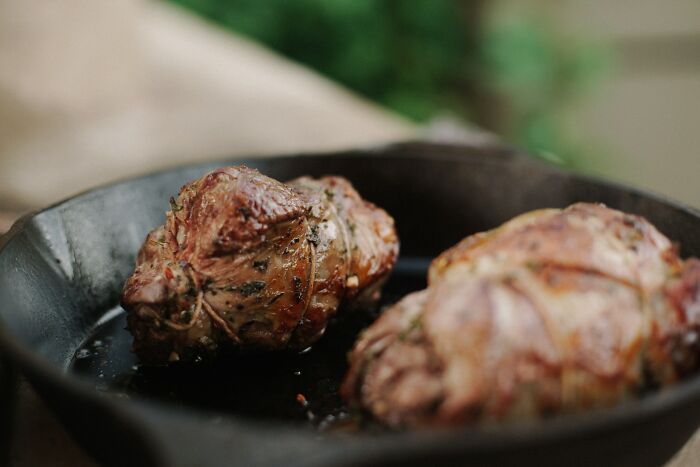
Image credits: WeavingUnicorn
#47
I was gifted an ulu. It's a knife used by Alaskan Native women. It's a game changer. It does EVERYTHING, from slicing to dicing, boning to fileting. It's my go-to all purpose knife, and I keep it very sharp. Learning knife cuts with that was the best thing that I ever did for myself.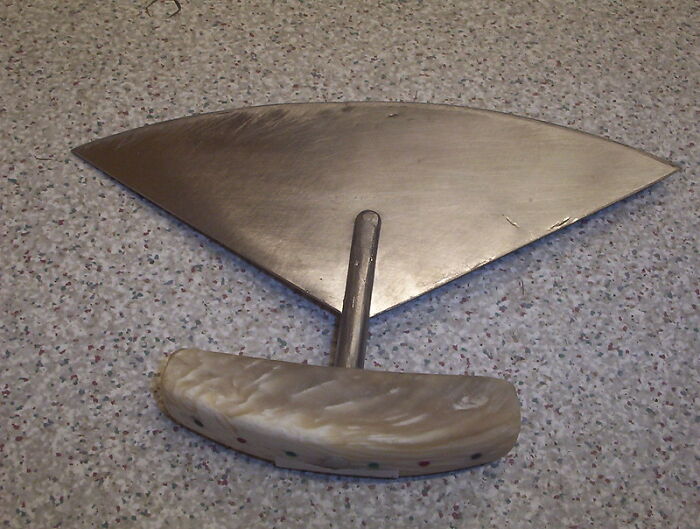
Image credits: Ahkhira
#48
Don't cut both ends off of an onion when you want to dice it, leave the bit where all the layers are held together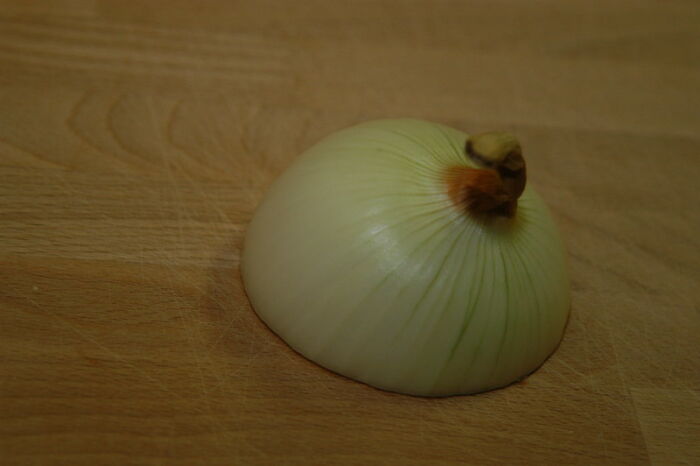
Image credits: megadori
#49
I use a dry towel under my cutting board when cutting bread because it makes clean up 1,000 times easier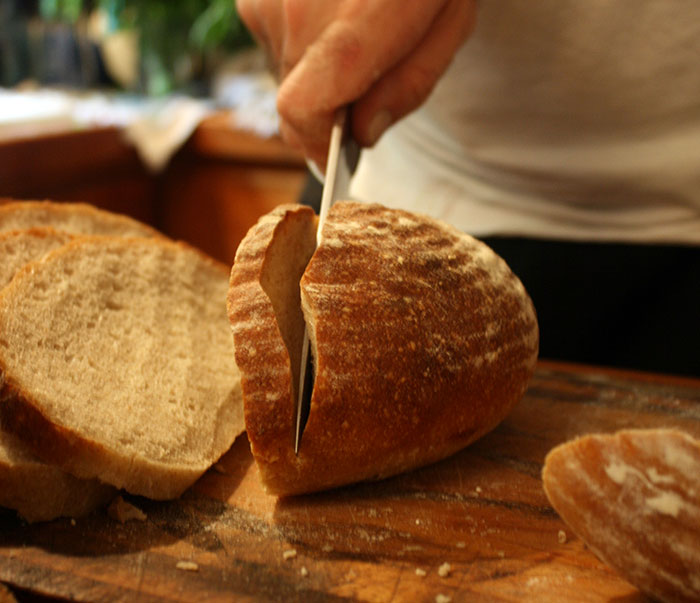
Image credits: MyOversoul
#50
In the summer when I'm tossing bad meat I freeze it till trash day.If you don't than you get a lovely trashcan full of maggots if the meats in there a few days
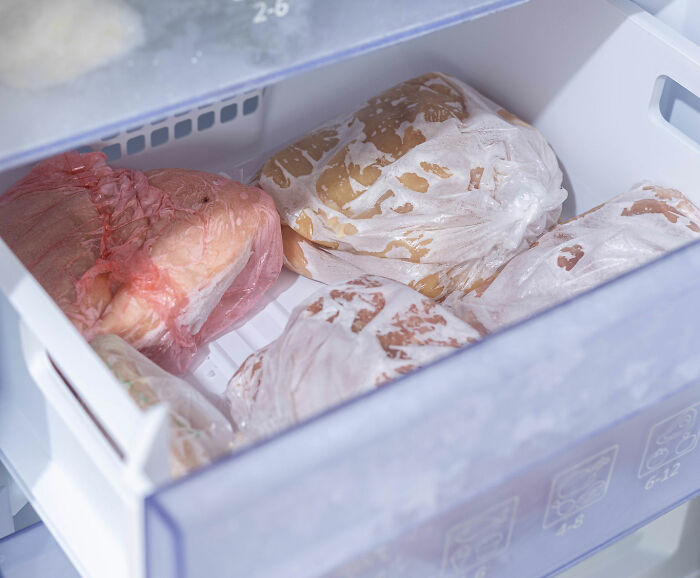
Image credits: Tee_hops
#51
If you’re not going to finish your food before it goes bad, put it in your freezer. Gordon Ramsay isn’t going to come out and start yelling at you because you used frozen chicken.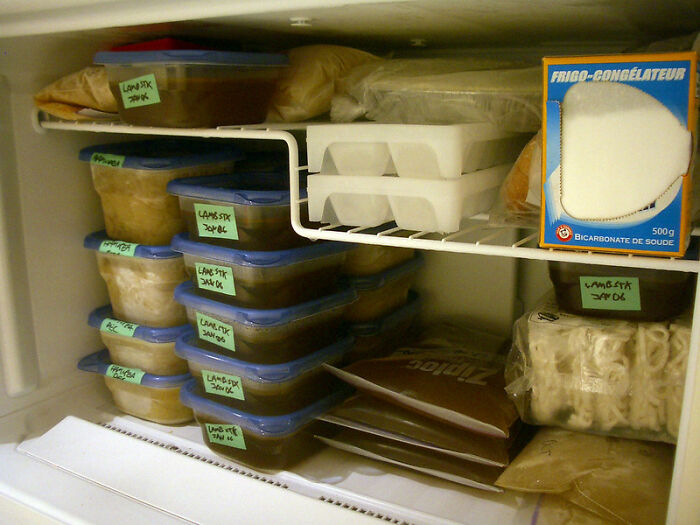
Image credits: mrbenten
#52
I poach my eggs in a metal ladle. Easy and quick clean up too.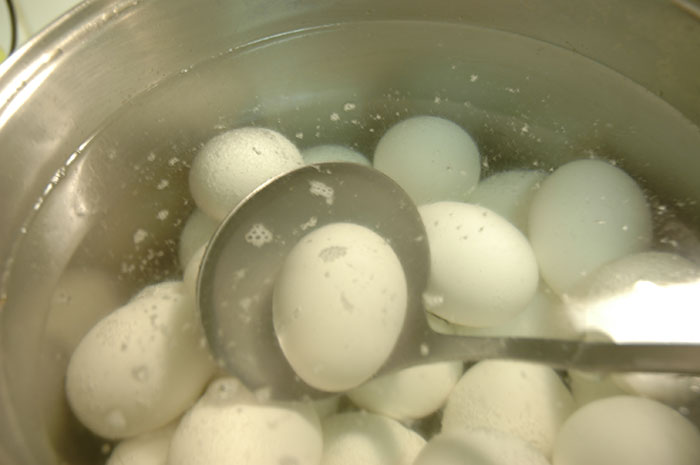
Image credits: Sol6908
#53
ATK (America's Test Kitchen) showed a REAL easy way: Heat the pan, then put the steak on. Turn it every 2 minutes until done. That's it. Use a thermometer if you want, but just keep turning it.Husband did this tonight. Perfect medium rare. Absolutely perfect. He used ONLY salt.
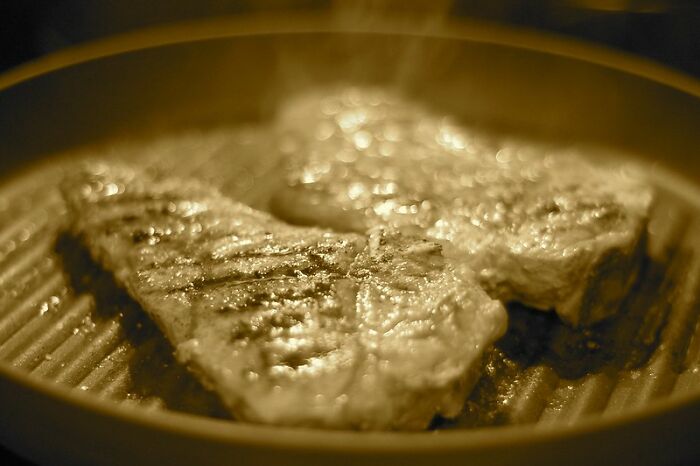
Image credits: propita106
#54
Peel the skin off ginger with a spoon. A Knife is too wasteful, and a spoon is way easier.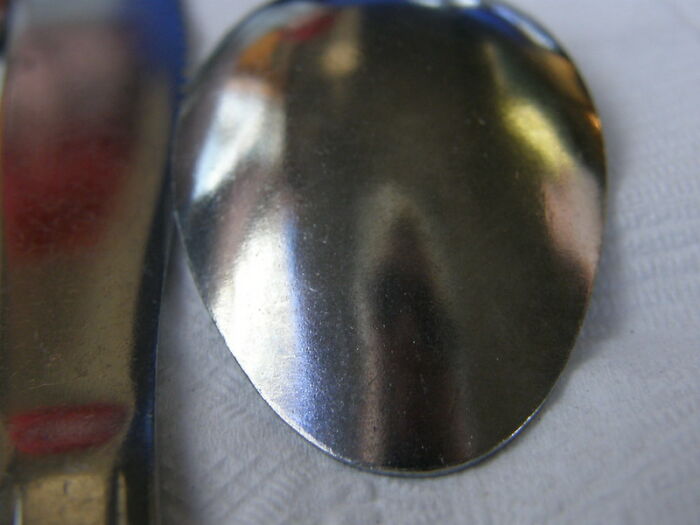
Image credits: cypher448
#55
Brown your butter when making brownies and cookies.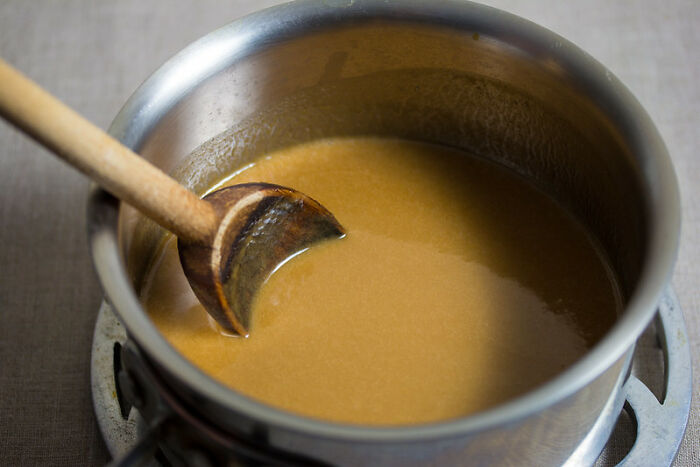
Image credits: velon360
#56
Turn the heat down. This was a big one for me. I thought so often 'I'm frying/searing stuff, I want it real hot, right?'.Medium to medium-high is ample 99% of the time, though. I personally don't have any recipes in my usual roster that actually need high heat.
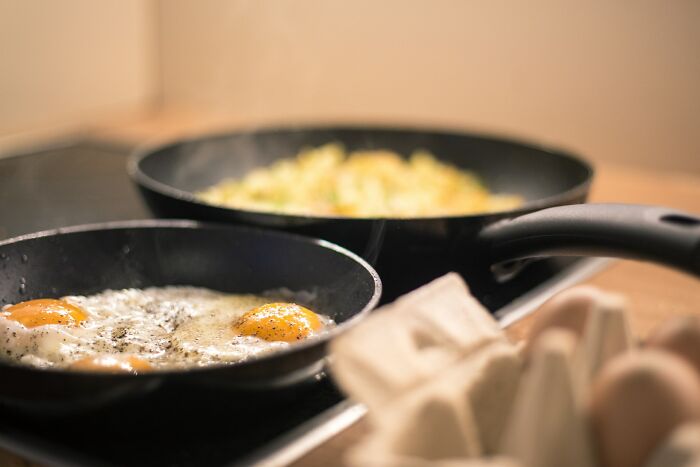
Image credits: Rogahar
#57
If you don't know how to cut a pomegranate perfectly, you can use a bowl of water to help separate the pods from the flesh. The flesh floats, the pods sink.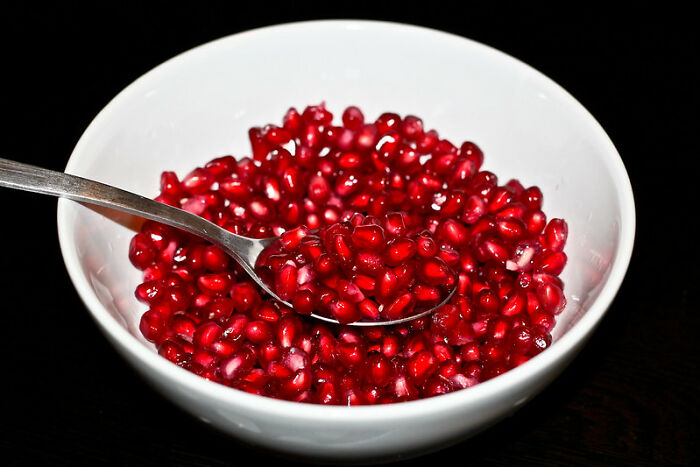
Image credits: AH0USE89
#58
A cheap meat thermometer seriously lifted my game.Perfect medium-rare steaks every time, and great for checking roasts are cooked through.
Pre-thermometer I was so scared of overcooking steaks that I often cooked them too rare for most people’s taste. Similarly was scared of drying out roasts but ended up with questionably pink bits.
A decent entry-level thermometer is only $10 (Australian).
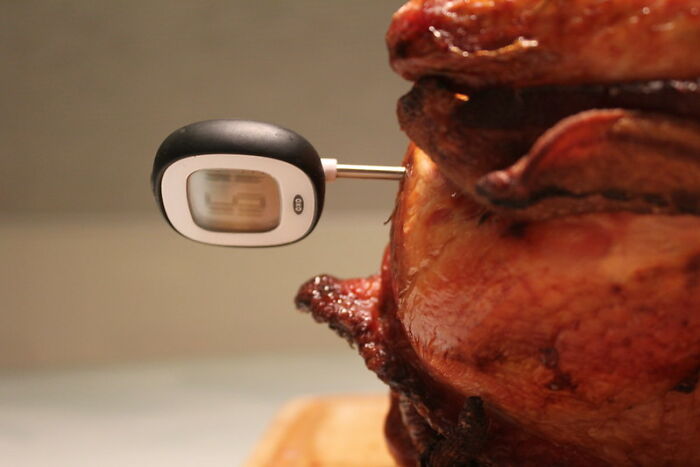
Image credits: Silly_Western9160
#59
I put my cutting board in a sheet pan when cutting something juicy so it doesn't get everywhere. Also works with cooling racks for crumb containment, or oil containment when frying.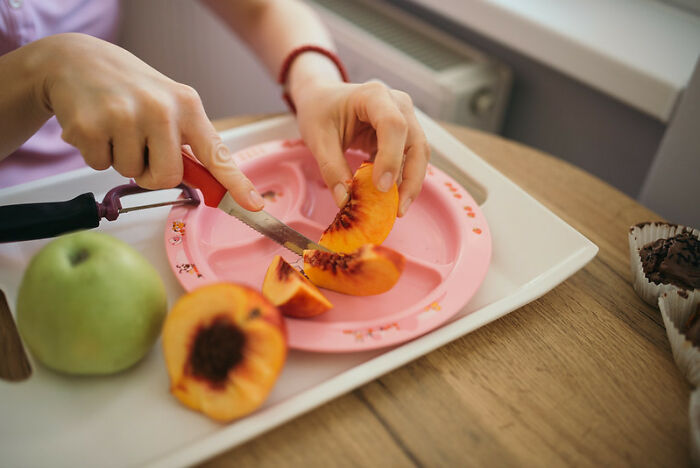
Image credits: verminiusrex
#60
When cutting round vegetables like carrots and cucumbers, create a flat surface to the veggie doesn't roll all over the place and you don't cut your fingers.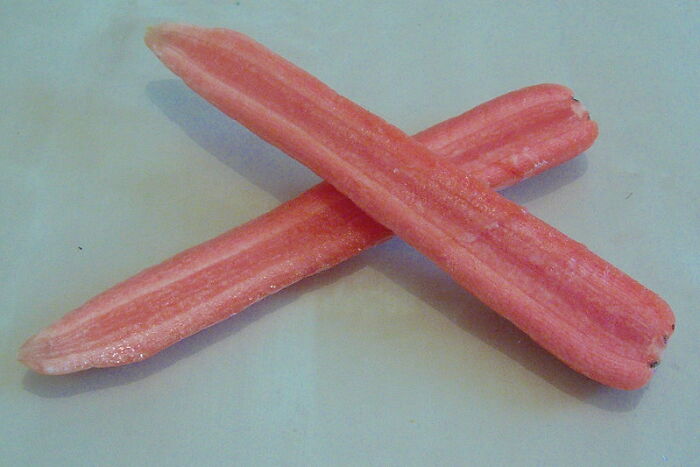
Image credits: CatWings64
#61
Measure by weight, not by volume. This has made tweaking recipes easier, has made solid recipes consistent, and shared recipes annoying to my friends. I see it as an absolute win.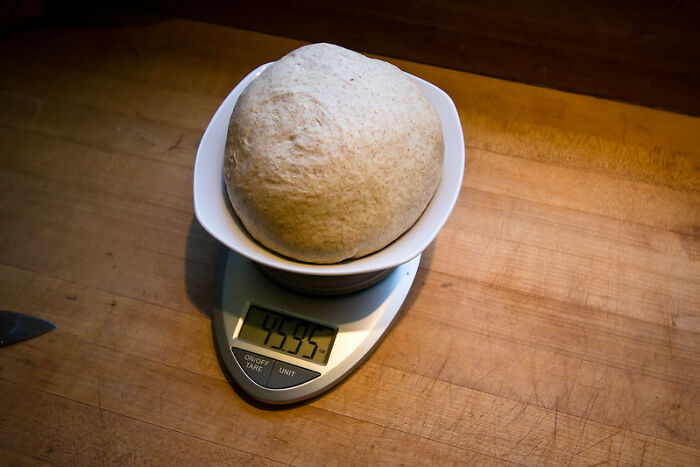
Image credits: CottonCandy_Eyeballs
#62
This is more baking than cooking but save the wax paper wrappers that sticks of butterare packaged in. When you need to butter a pan, wipe it with the remaining butter on the wrapper then toss. Easy to do and nothing to clean.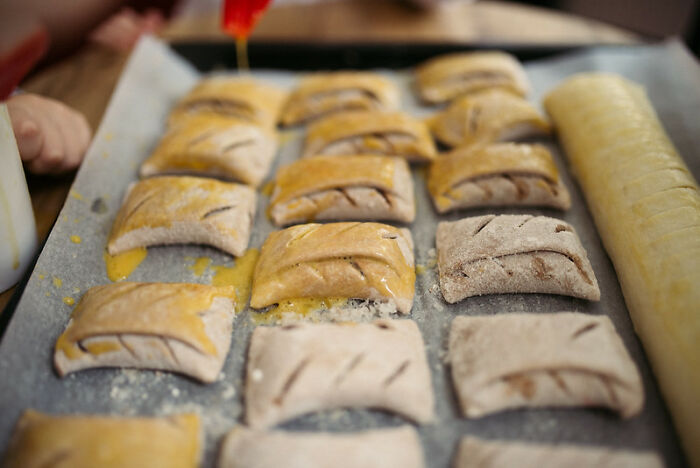
Image credits: nevernotmad
#63
When buttering a parchment round for a cake pan, butter one side of parchment generously. Then lay the round butter side down in the cake pan and move it around with your fingers to butter the pan.Then take the round out and put it back in the pan, but butter side up. Presto-pan is buttered.
Learned this from Jaques Pépin. Really saves time and greasy fingers.
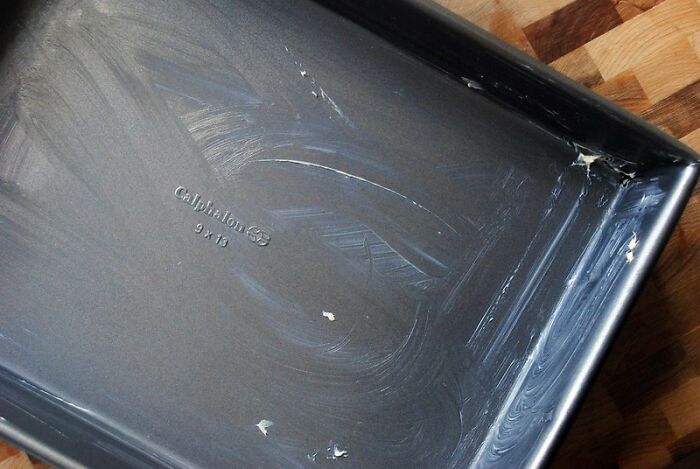
Image credits: Nohlrabi
#64
Avoid using certain items because you hate washing small items like silicone muffin cups by hand? Put them in the dishwasher and put you cookie cooling rack over the top on them. Thoroughly cleaned and they stay put til you take them out to store them.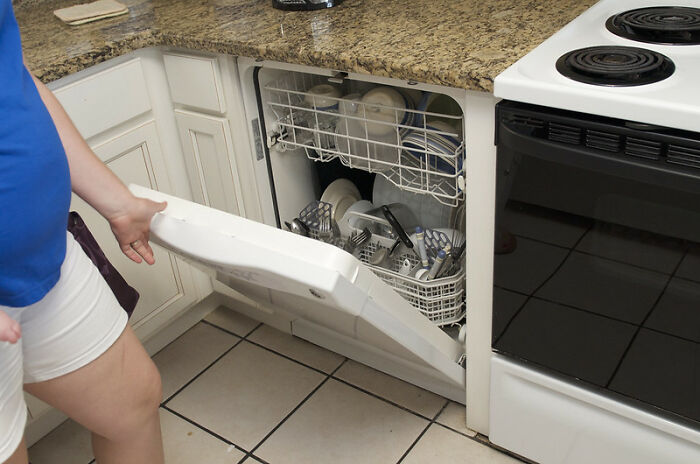
Image credits: Onehundredyearsold
#65
You can use apple sauce instead of oil when baking things. I always sub it when I make zucchini bread.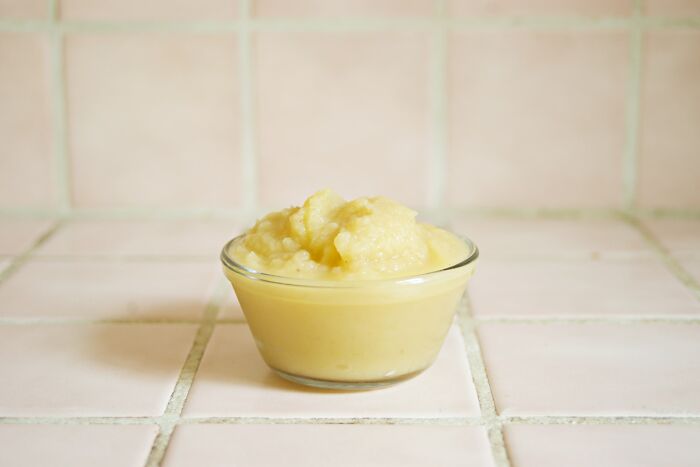
Image credits: KitchenWitch38
#66
Tired of potatoes sticking to your knife with every chop? Don't chop down. Drag the knife tip through instead.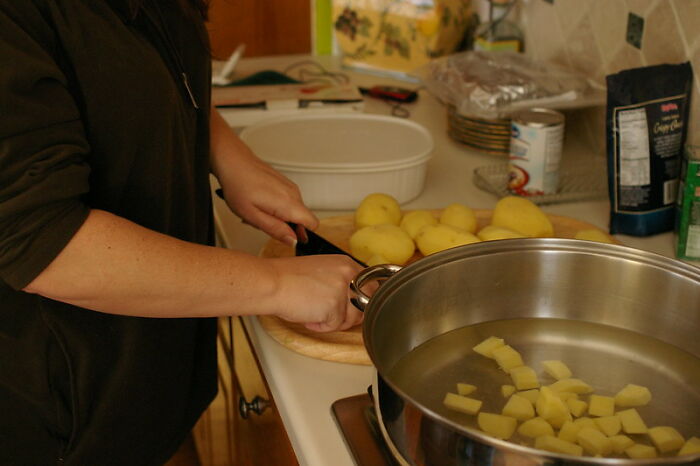
Image credits: magicmocha6
#67
I use the butter wrappers for pressing my rice krispie treats into the baking dish. No sticking, no mess, and way more precise than using the spatula.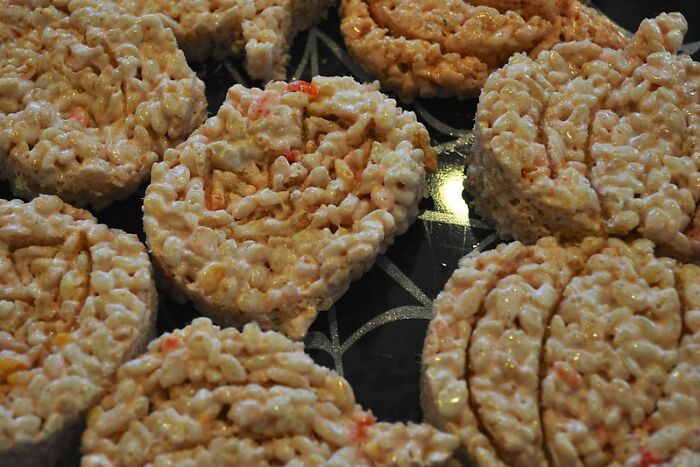
Image credits: mehunno
#68
Fresh ingredients are NOT the key to good cooking. Good technique is the key. Fresh ingredients give you an edge.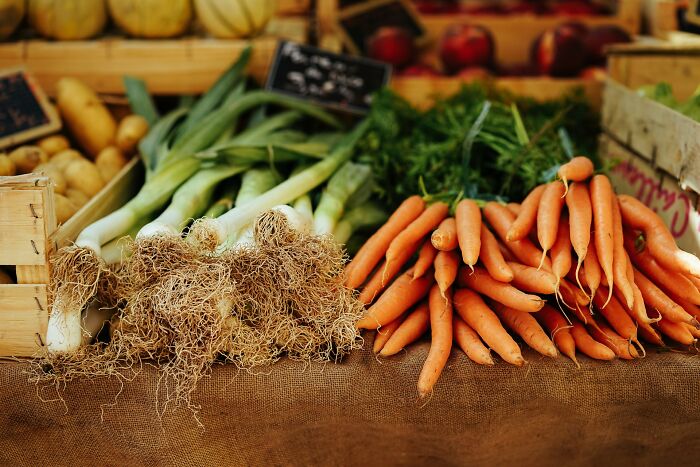
Image credits: TopazWarrior
#69
Reverse taring - put your full ingredient bin on the scale, set it to zero, and measure what you’ve taken out. This way you can weigh ingredients into something hot or unwieldy without getting another dish dirty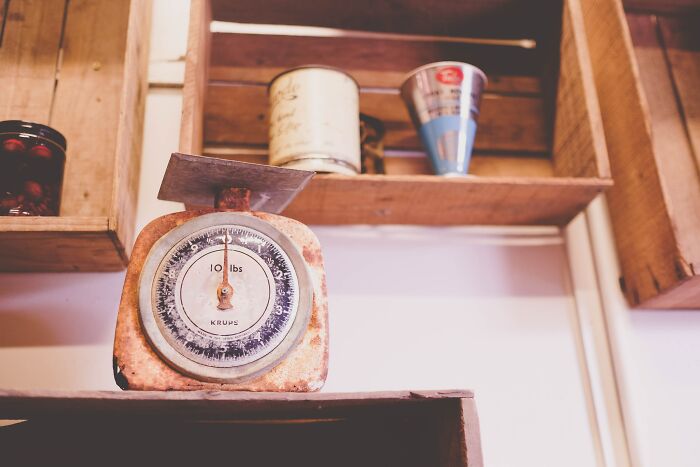
Image credits: legoruthead
#70
Brining chicken really does make a big difference!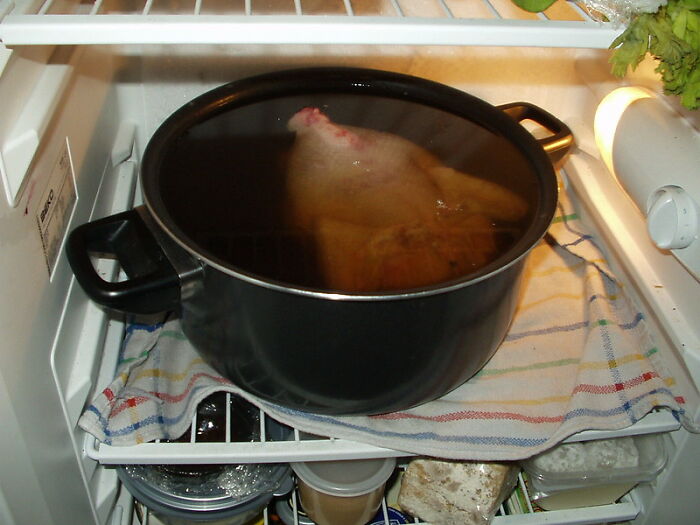
Image credits: chloeglowy
#71
Spend a day a month prepping the building blocks of food. I have a rotation of things I make and freeze, which can be used to build a wide selection of meals. Things like soup stocks, pre-cooked minced beef/mushroom/aromatics, chili, soups, stew bases, and curry bases. And when expensive things go on sale, I’ll buy a bunch and freeze in meal-sized portions (sometimes in marinade or a stew base). I love it when whole chickens go on sale: I’ll buy 4, break them down, and make a huge batch of stock, some of which will make chicken soup base.
Image credits: madmaxx
#72
Poach eggs in a frying pan rather than a saucepan. Just crack the egg and it sinks to the bottom, no need for water swirling, vinegar or any of that nonsense!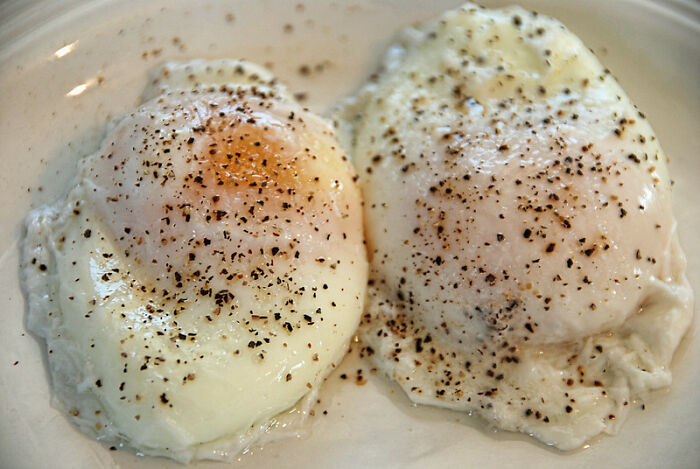
Image credits: criminalmadman
#73
Cutting meat into the '1 inch cubes' called for in many recipes is far easier with scissors/kitchen shears than with a knife, in my experience.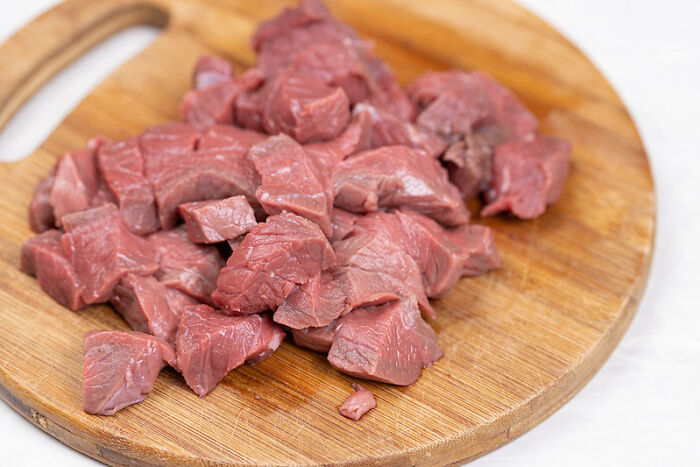
Image credits: Rogahar
#74
Don't buy a knife block set. Sure they look great and everything but at the end of the day you're only ever going to need/use 3: a Chef's knife, serrated bread knife, and a paring knife. Those 3 at good quality will last a lifetime.Also: most (but not all, this might be region specific?) butchers will sharpen your knives for free.
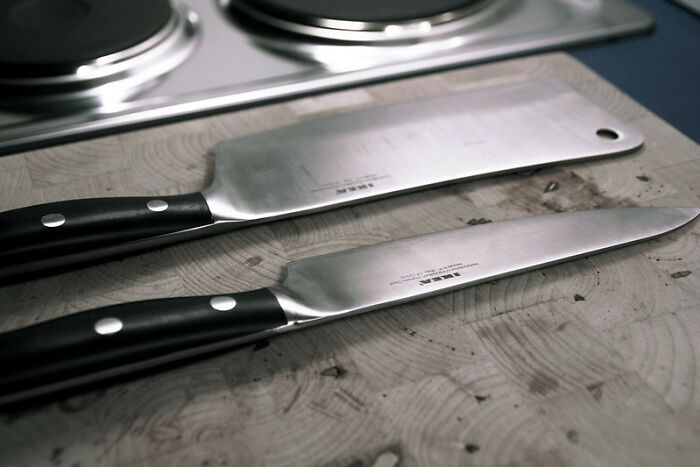
Image credits: n-mayh
#75
When cooking bacon on cast iron, place the bacon in the pan when it’s cold, then warm up with the bacon already in there. This way you won’t need extra fat to avoid the bacon sticking to a hot pan.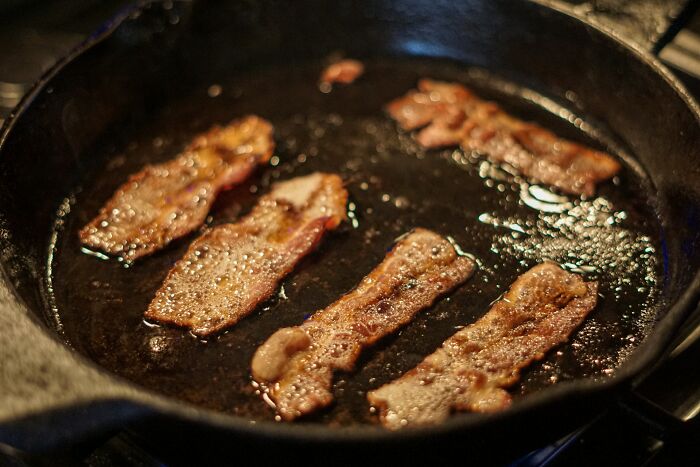
Image credits: baabaaredsheep
#76
Cook your bacon on a tray lined with parchment paper. No splatters to clean up, it doesn’t curl up, more even cooking, and you can cook a whole pound or more at one time.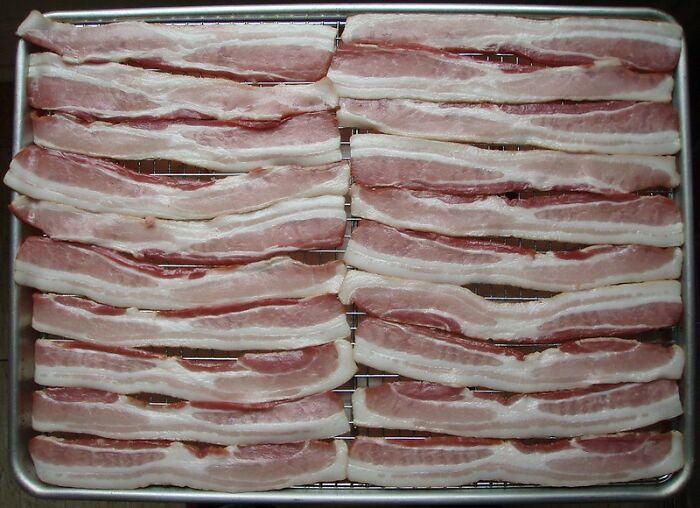
Image credits: mkstot
#77
If you have the space make your broth ahead of time and freeze. I've just started making broth overnight too. Mostly because I have a broken crockpot that doesn't latch and a new dog I don't trust to not mess with it during the day.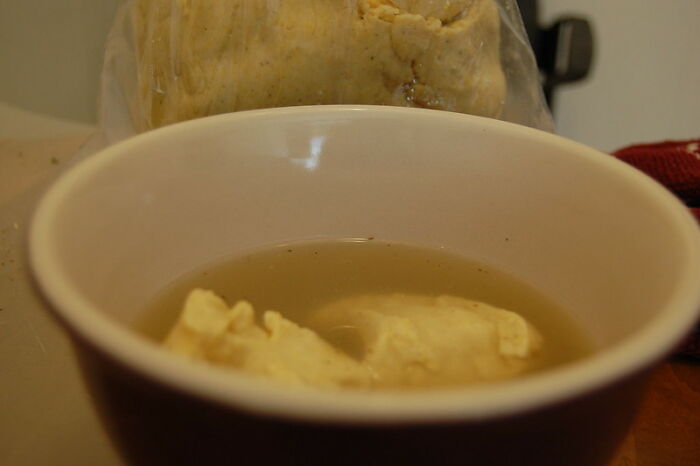
Image credits: smartchic65
#78
When I find cut up chicken on sale, I stock up. I separate the individual pieces on a parchment lined baking pan and set it in the freezer. Once solid, I then wrap and bag it, and return it to the freezer. Much better than freezing the entire package as a solid mass. It took me 30 years to figure this out.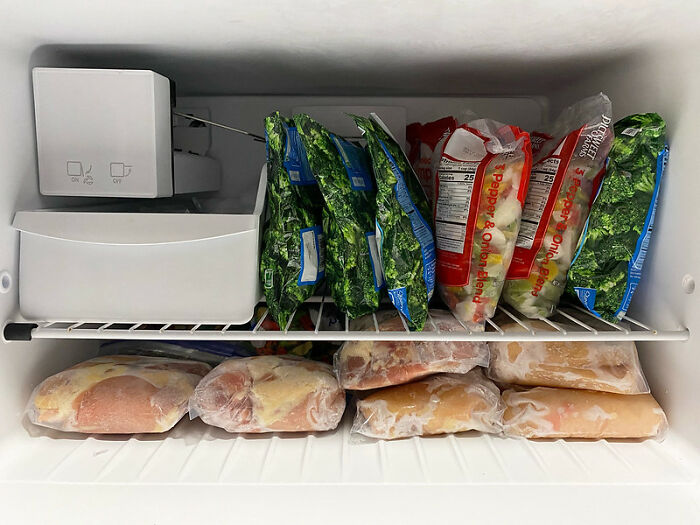
Image credits: elinchgo
#79
If you can't figure out what it's missing, it's probably acidity. Changed my game entirely. (I don't do sweets, for reference).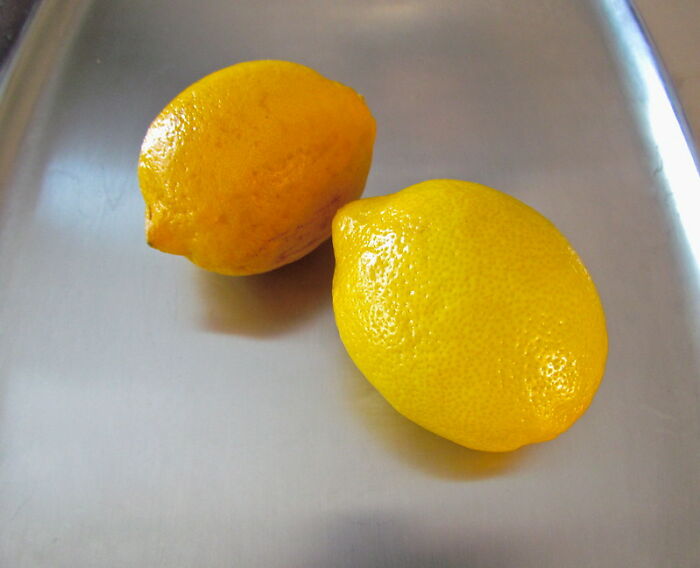
Image credits: The_Great_Ginge
#80
If you want to use corn flour as a thickener for soups/stews, but don't want to end up having to add more water into the soup/stew from the slurry, just remove a portion of the soup into a cup or bowl and add the cornflour to that before adding it back in.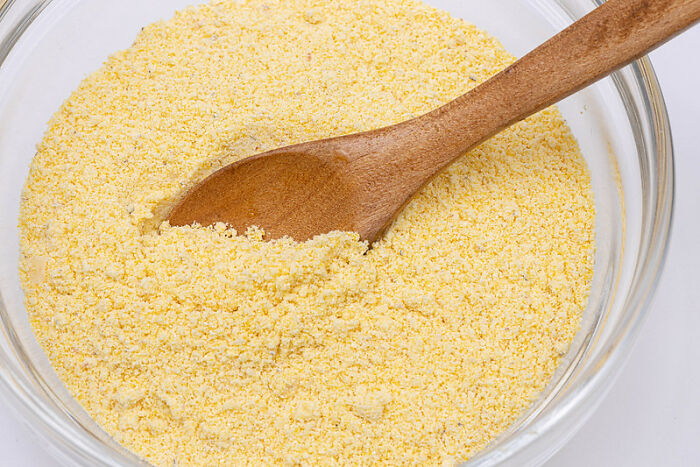
Image credits: SeeYouSpaceCorgi
#81
Cut the root off the garlic before you smash it with the side of your knife, don’t know how all the garlic smash tutorials miss that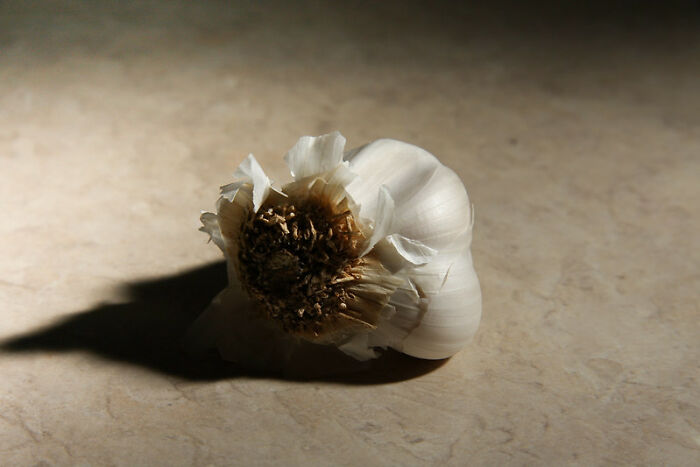
Image credits: trevg_123
#82
Save some pasta water when draining to bring together your sauce. The starchy water acts as an emulsifier. Game changer.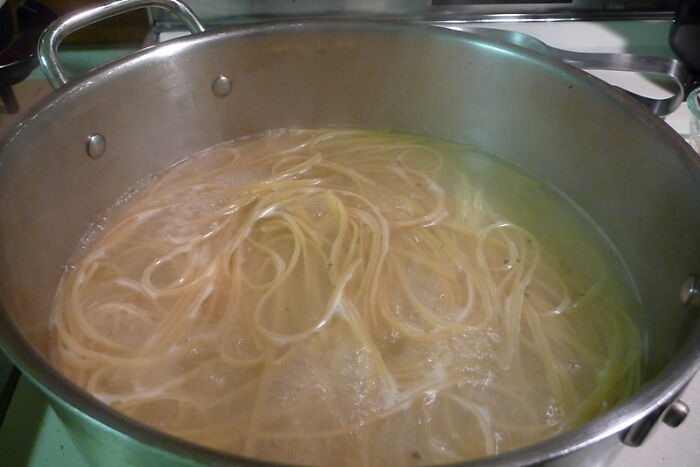
Image credits: ZoeKittenxx
#83
When making meatballs or meatloaf take a teaspoon of your mixture and microwave it for 30 secs and taste it for seasoning. Also microwave your plates before plating.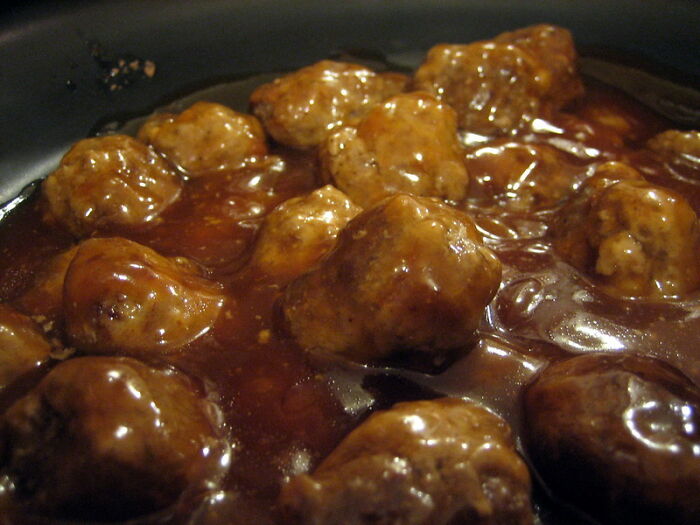
Image credits: SlipperyWhenWetFarts
#84
This one's for pie dough, but grate the butter on a cheese grater then mix it in. Saves a ton of time with the pastry blender. Helps if you freeze it a little first.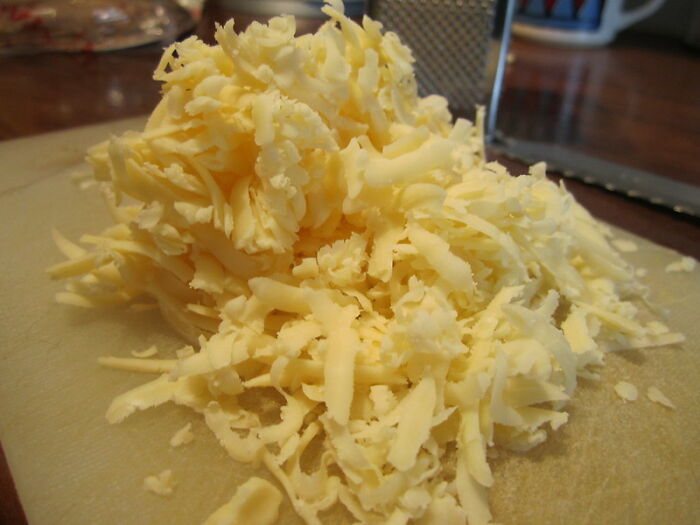
Image credits: FearTheDears
#85
When making a large pot of soup, I add about a tablespoon of vinegar around 45 minutes before it’s done. It adds a bit of depth to the final flavor.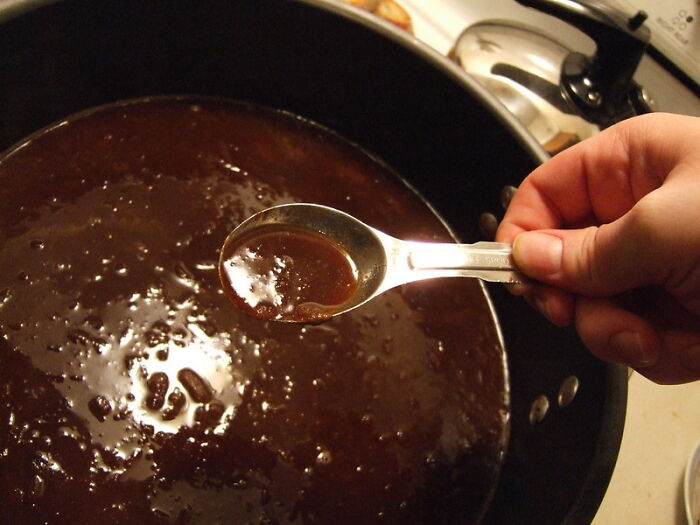
Image credits: Hey_Laaady
#86
More of a gardening tip, rather than cooking-- We aren't allowed to compost in our neighborhood (HOA rule), and there are not nearby services (yet). So I freeze veggies scraps and "plant" them under the veggies I plant. Ever since I started doing this, my tomato plants have gone absolutely crazy.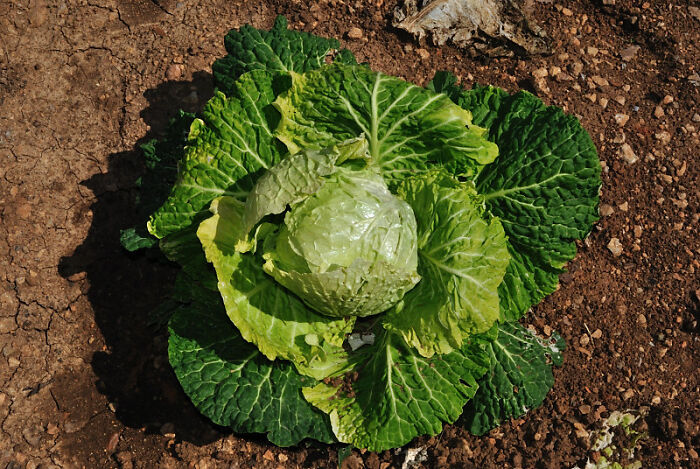
Image credits: radioowl
#87
Another stealth composting method is blender composting. Blend any veggies/food scraps with water, pour around trees and shrubs. We avoid meat items but eggs are ok.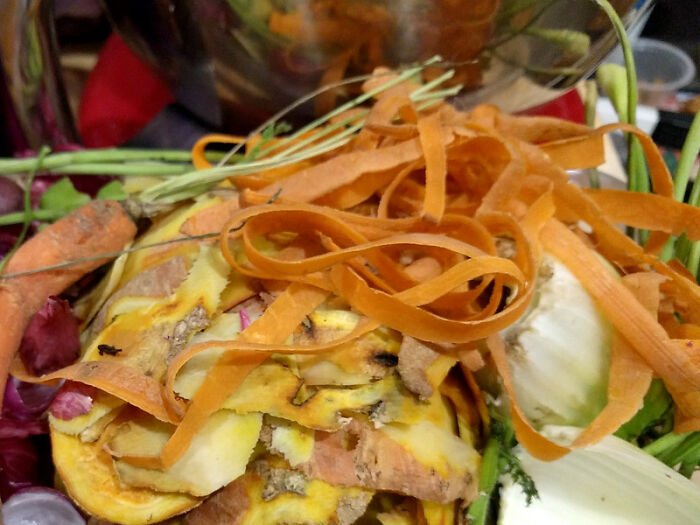
Image credits: 5catmom
#88
Regardless of how much you like cooking, a rotisserie chicken+veggies from the grocery store, then stock from the carcass, and soup from the stock...that's an insane amount of return on 15-20 bucks (Canadian non-costco prices).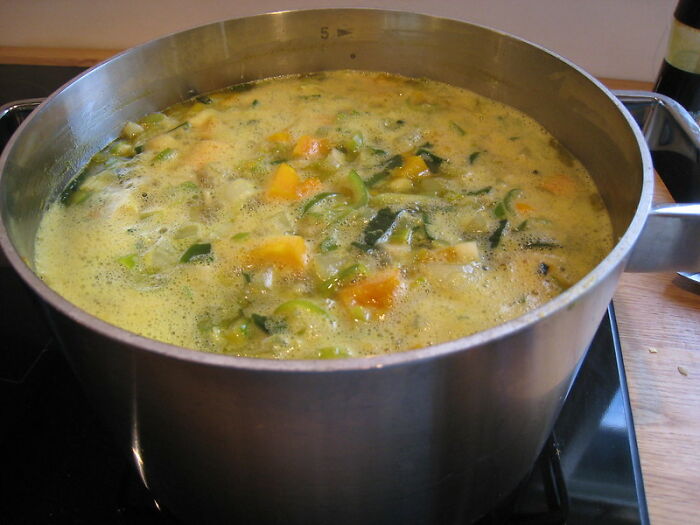
Image credits: eddyofyork
#89
For tomato paste cans, open both sides and push one side of the lids through, then take off the other lid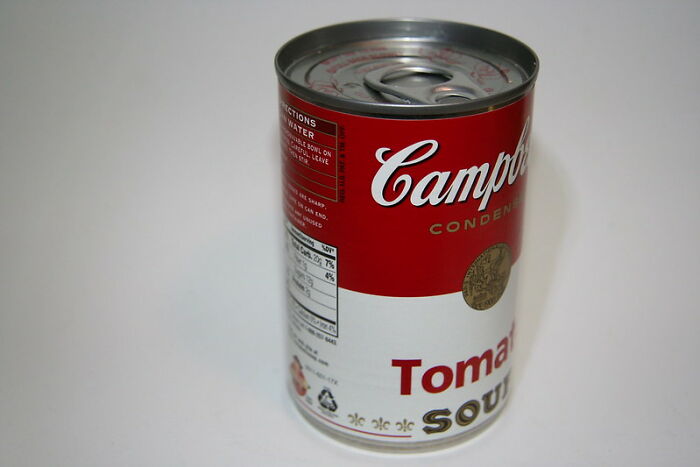
Image credits: Sleepynn
#90
freezing or partially freezing meat if i need to slice it up thin. Works great for the bacon end pieces i use in a few things since it cuts fairly easily when frozen.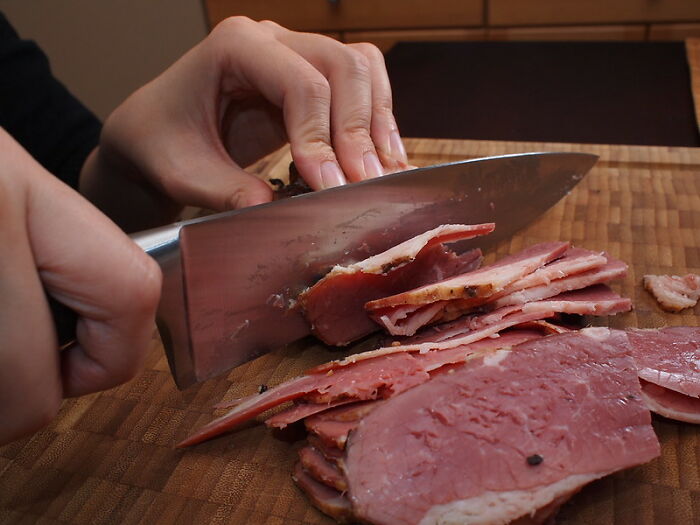
Image credits: Tschudy
#91
I put my freshly made and still warm vegetable stock in 24 – 32 oz. glass jars, put the metal lid on and leave it on the counter. After a few hours, you hear the lid “click” or “pop” as it seals. It is NOT real canning, but the unopened stock lasts forever in the refrigerator; like 6-9 months. Before I started storing it this way, stock would only last about a month in the refrigerator.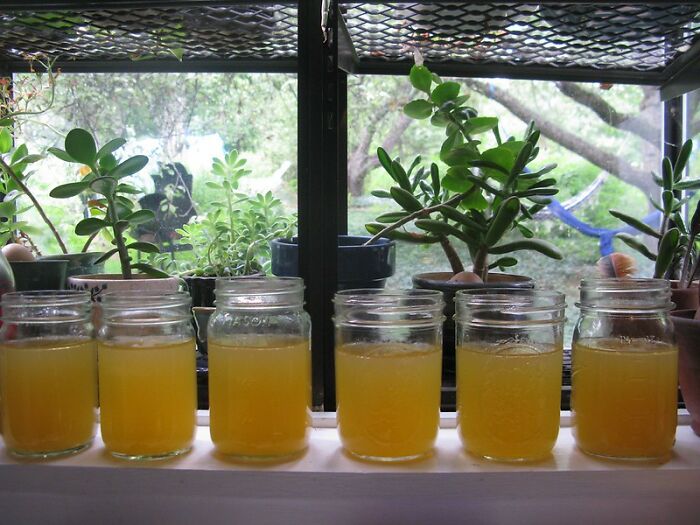
Image credits: ChelseaPlaid
#92
Using a bench knife to transfer chopped veggies to a saute pan.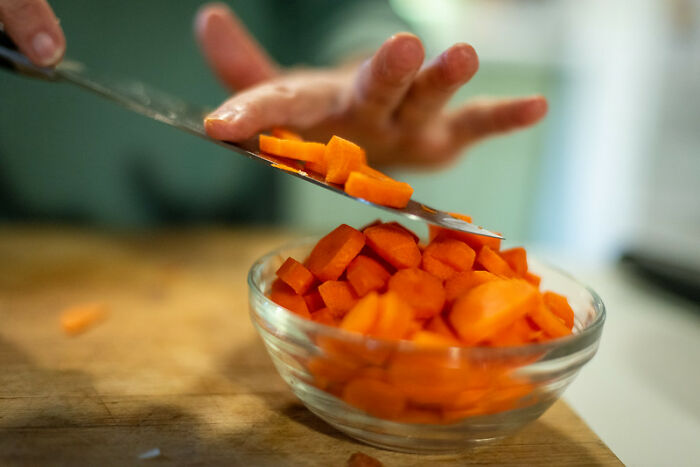
Image credits: awhq
#93
Use a Mexican style hinged lemon press thing to squeeze the juice of citrus fruits. After using old-fashioned glass/plastic ones, wooden ones on handles, and electric ones, finding and using one of these was a revelation.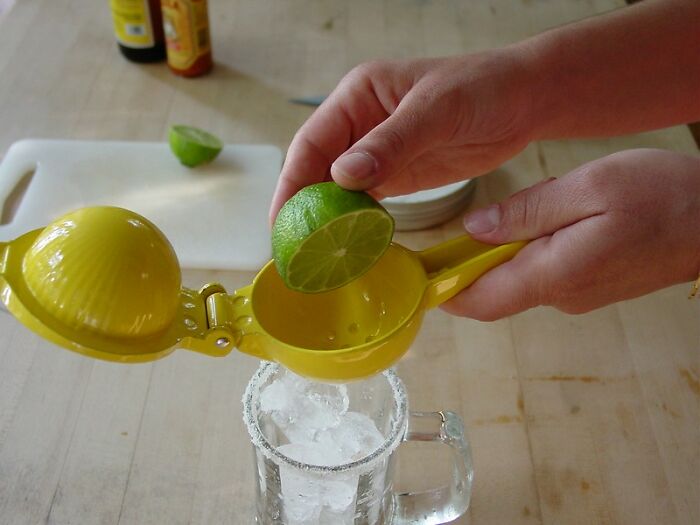
Image credits: Opinionofmine
#94
Broil/char onion halves for stock.Do all mise en place before putting heat to pan.
Make fresh pasta, it's so incredibly easy.
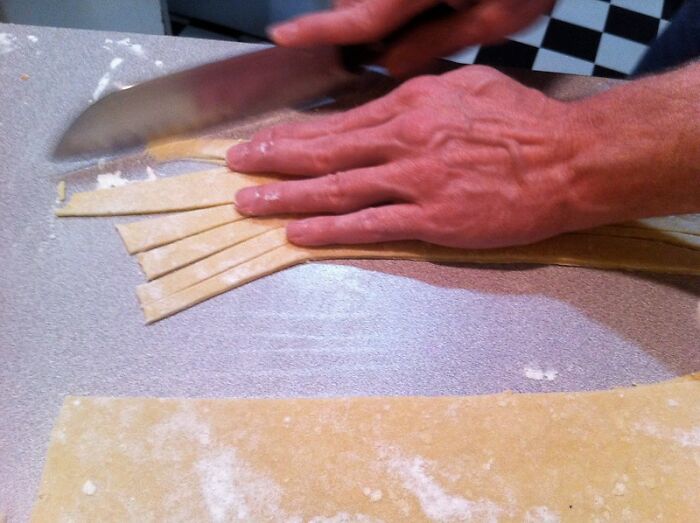
Image credits: SueBeee
#95
Some anchovies at the beginning is a game changer for sauces.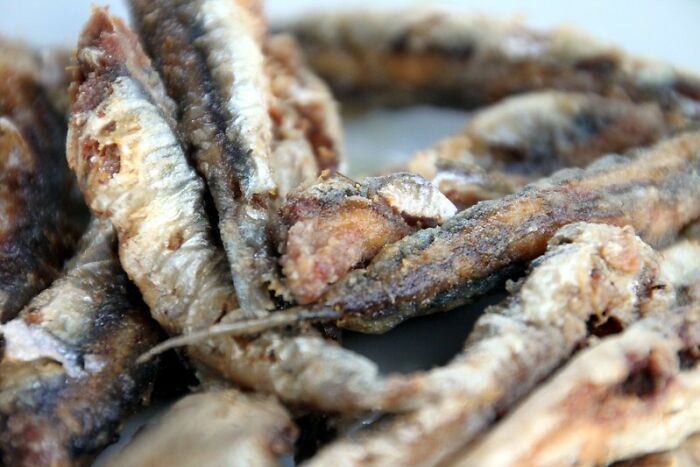
Image credits: NoGnomeShit
